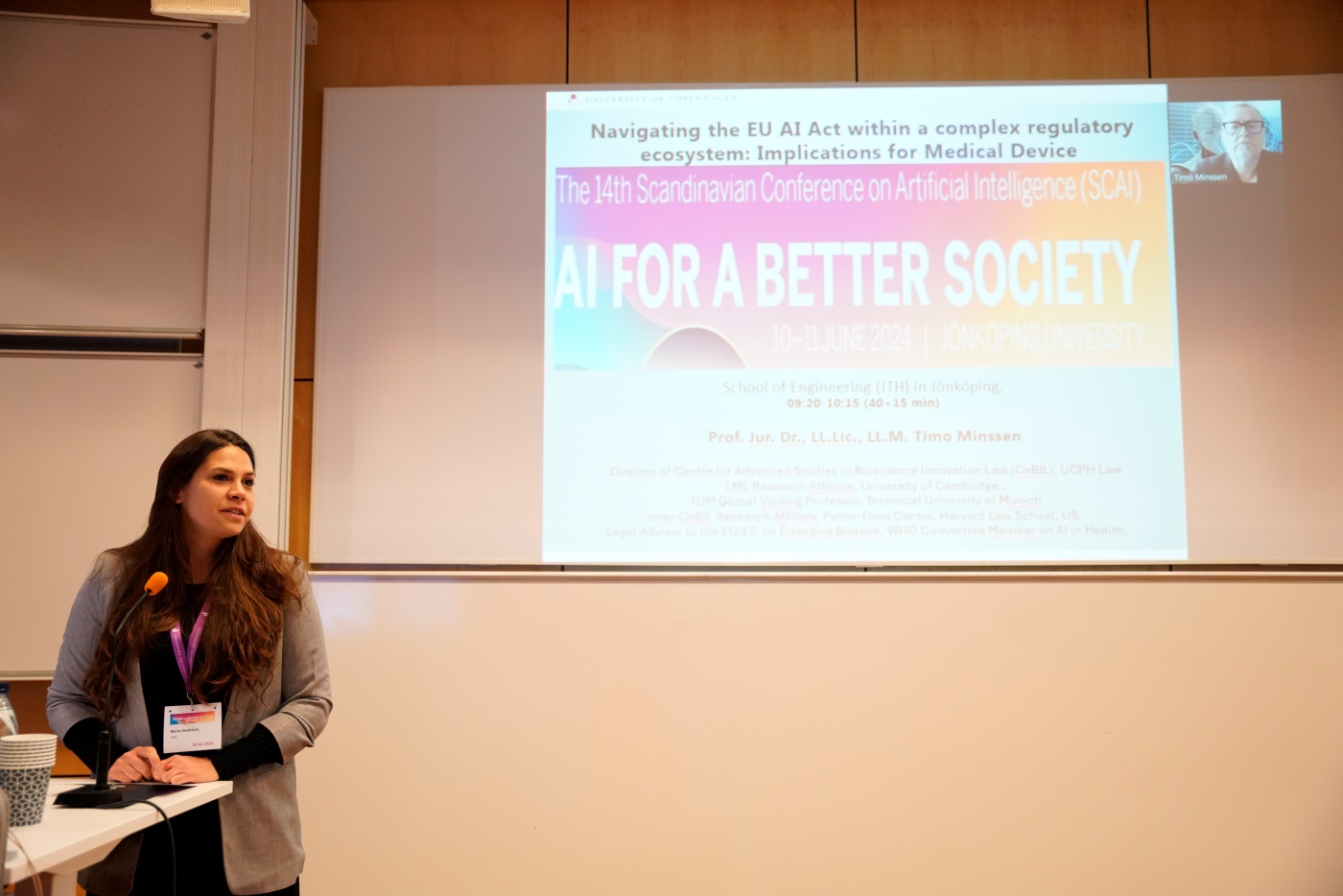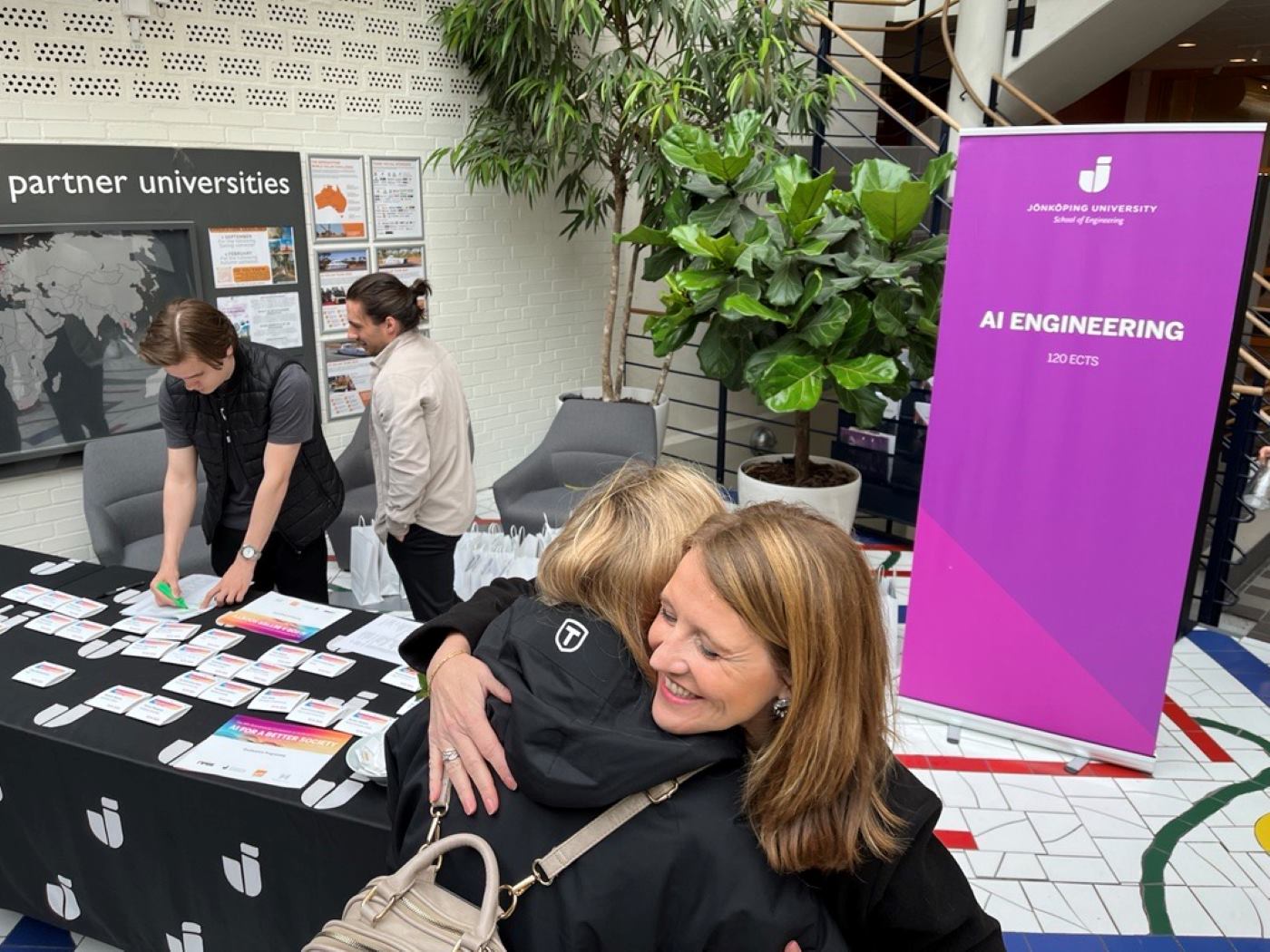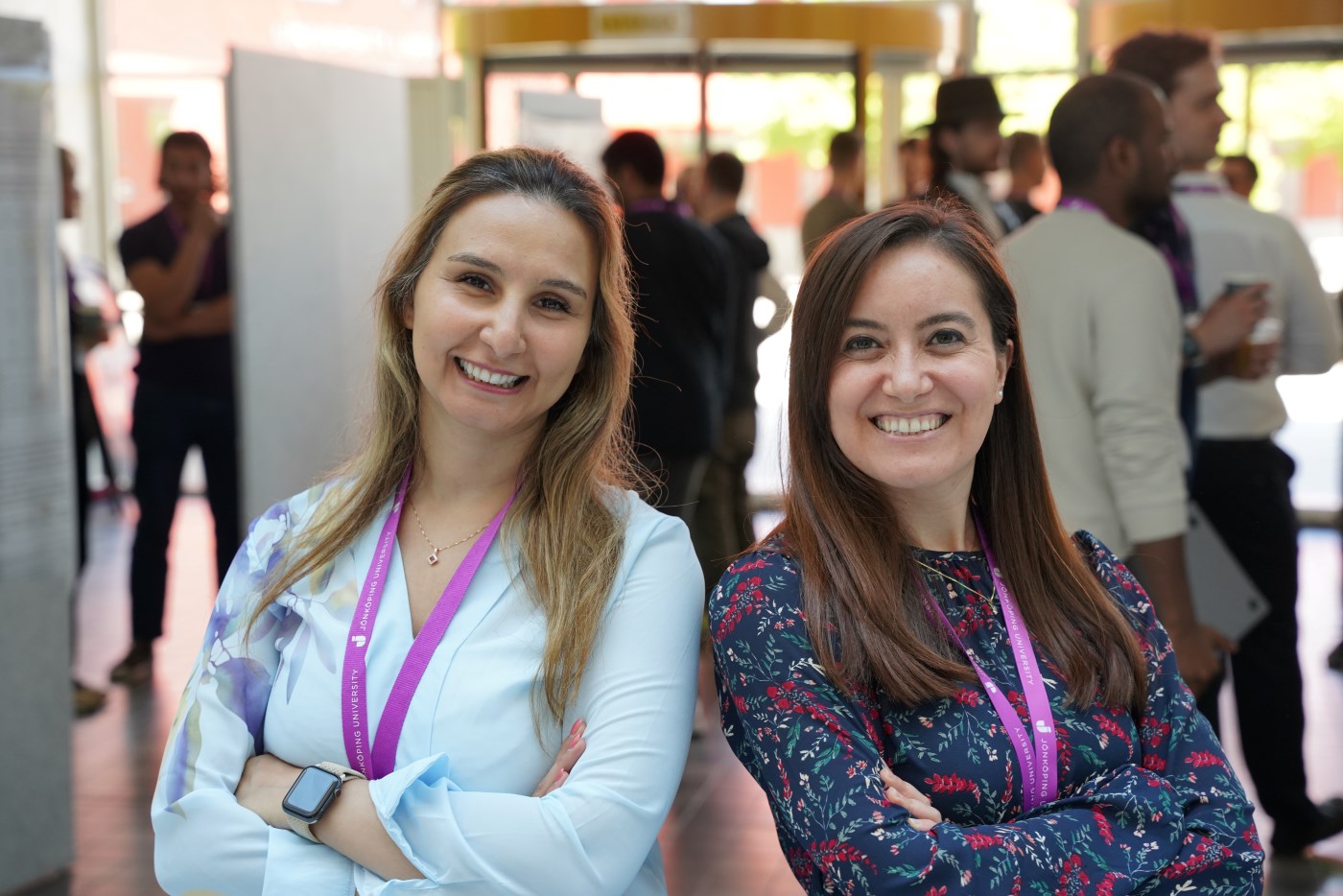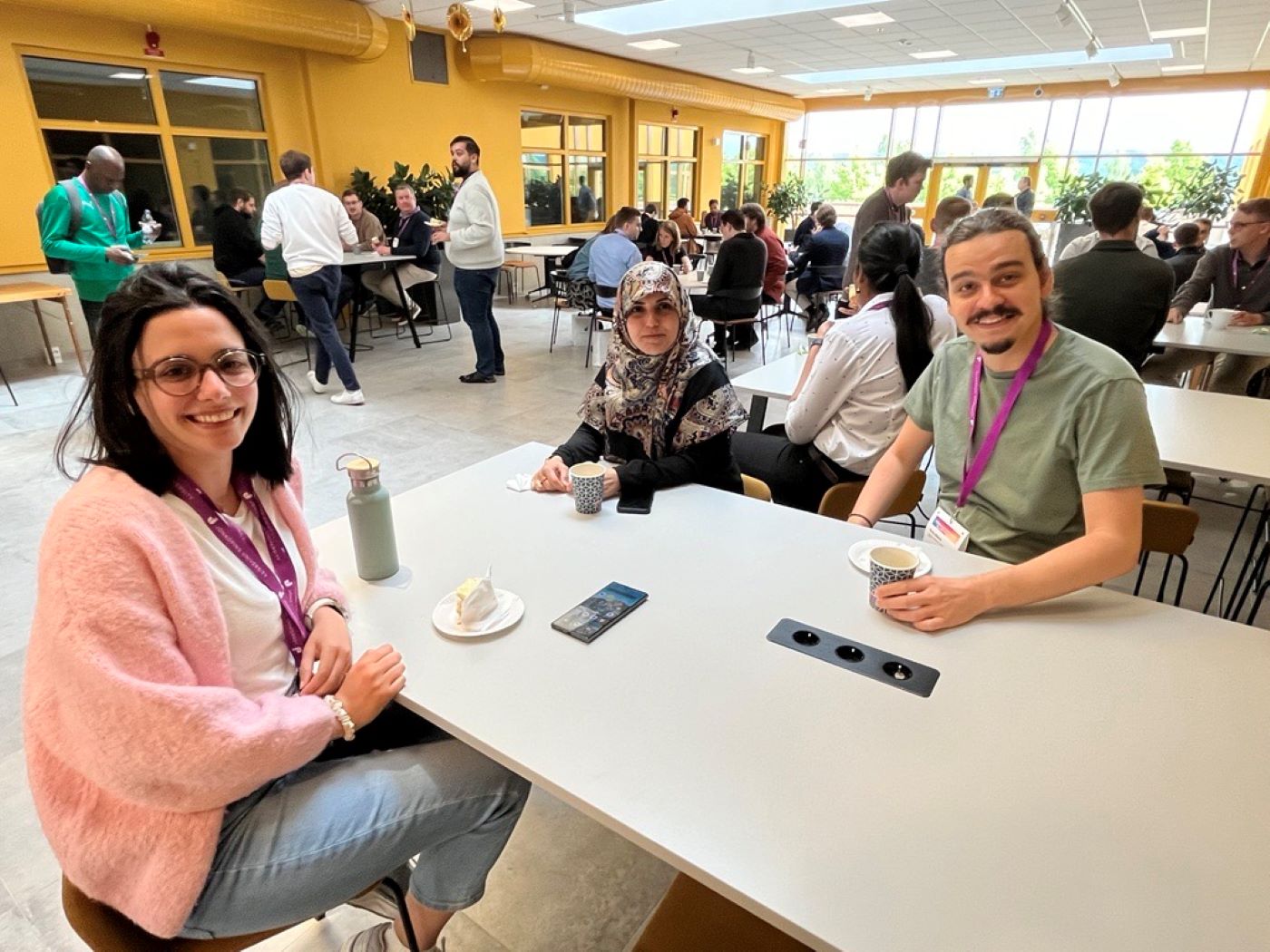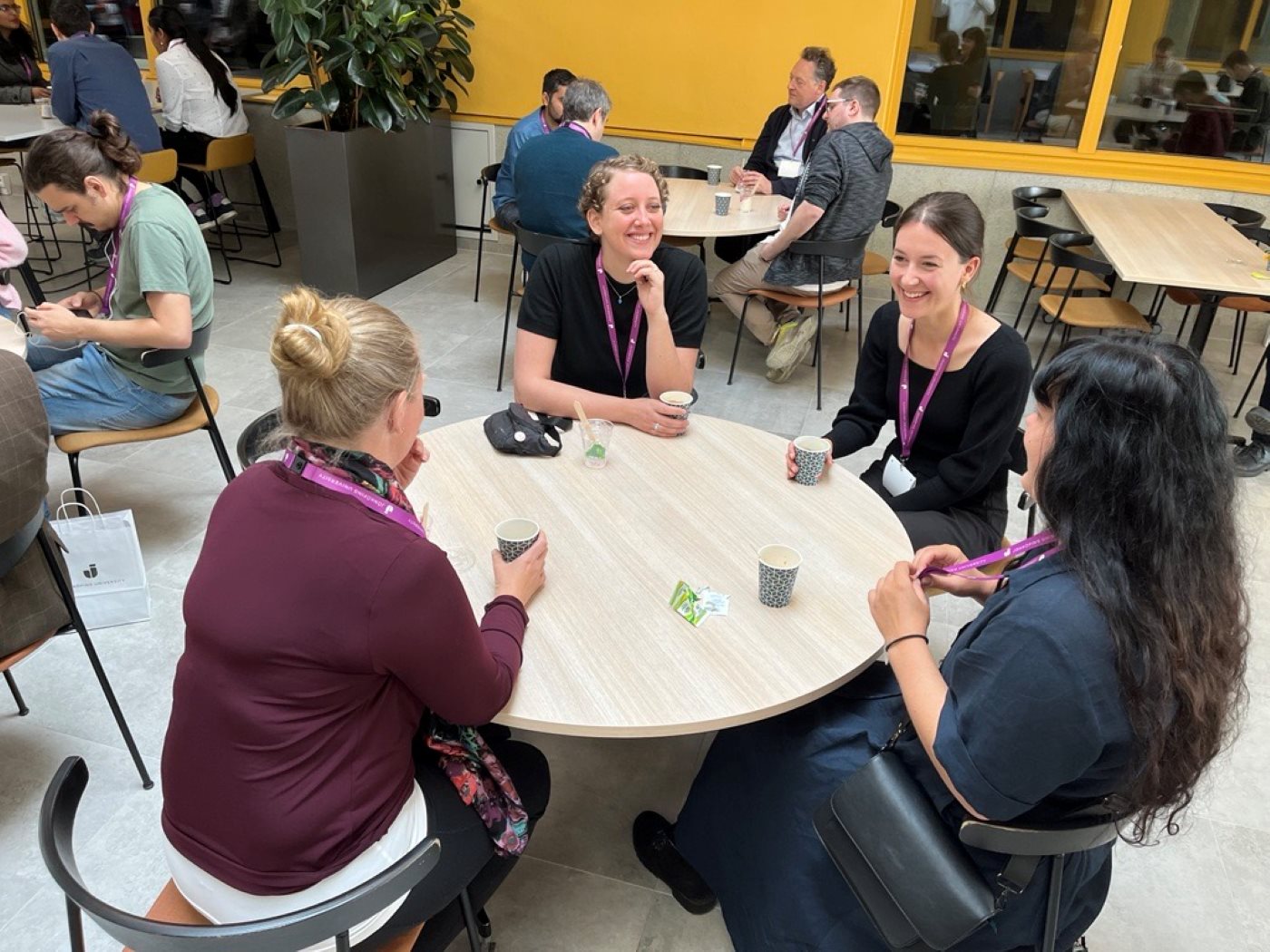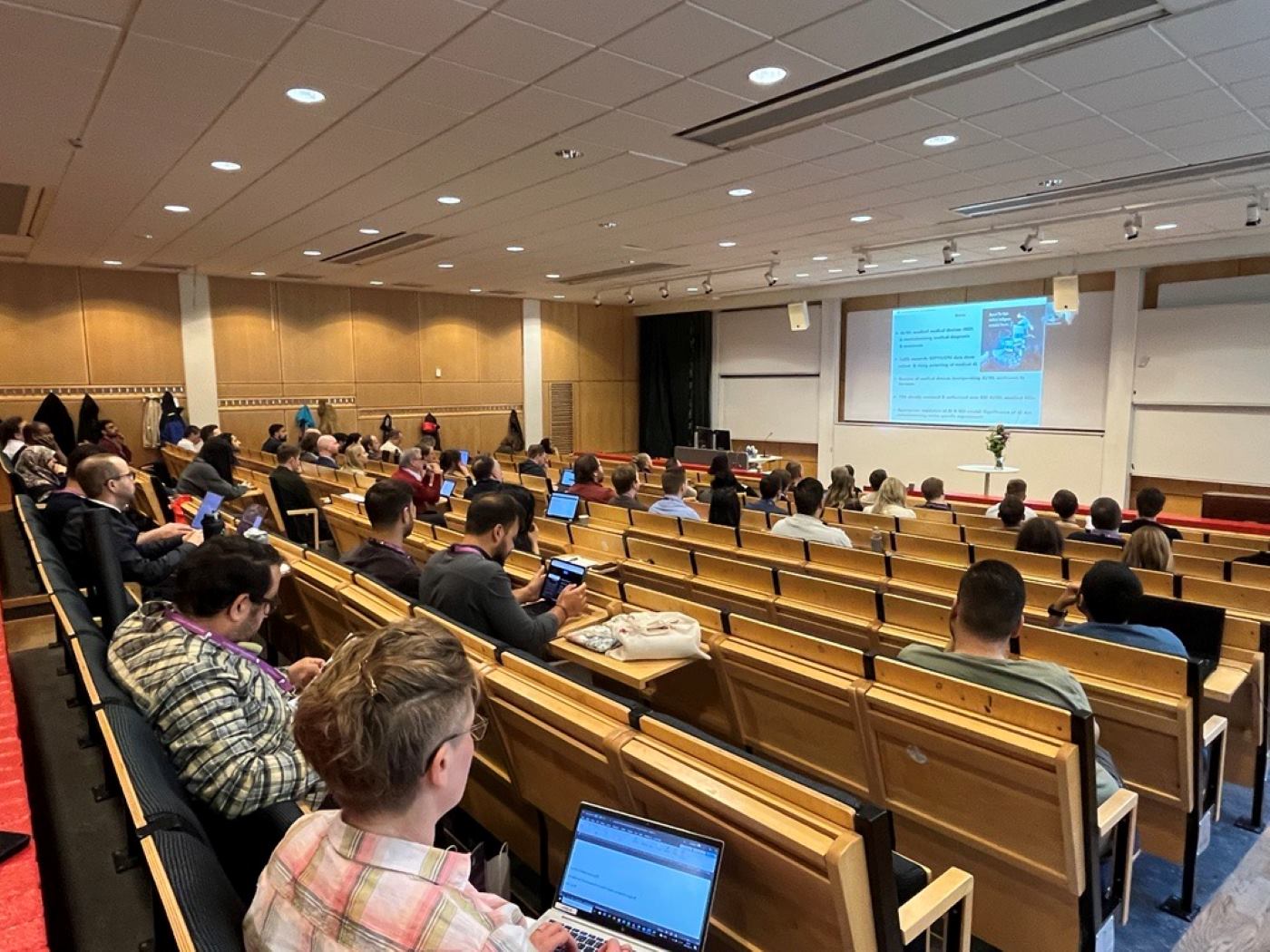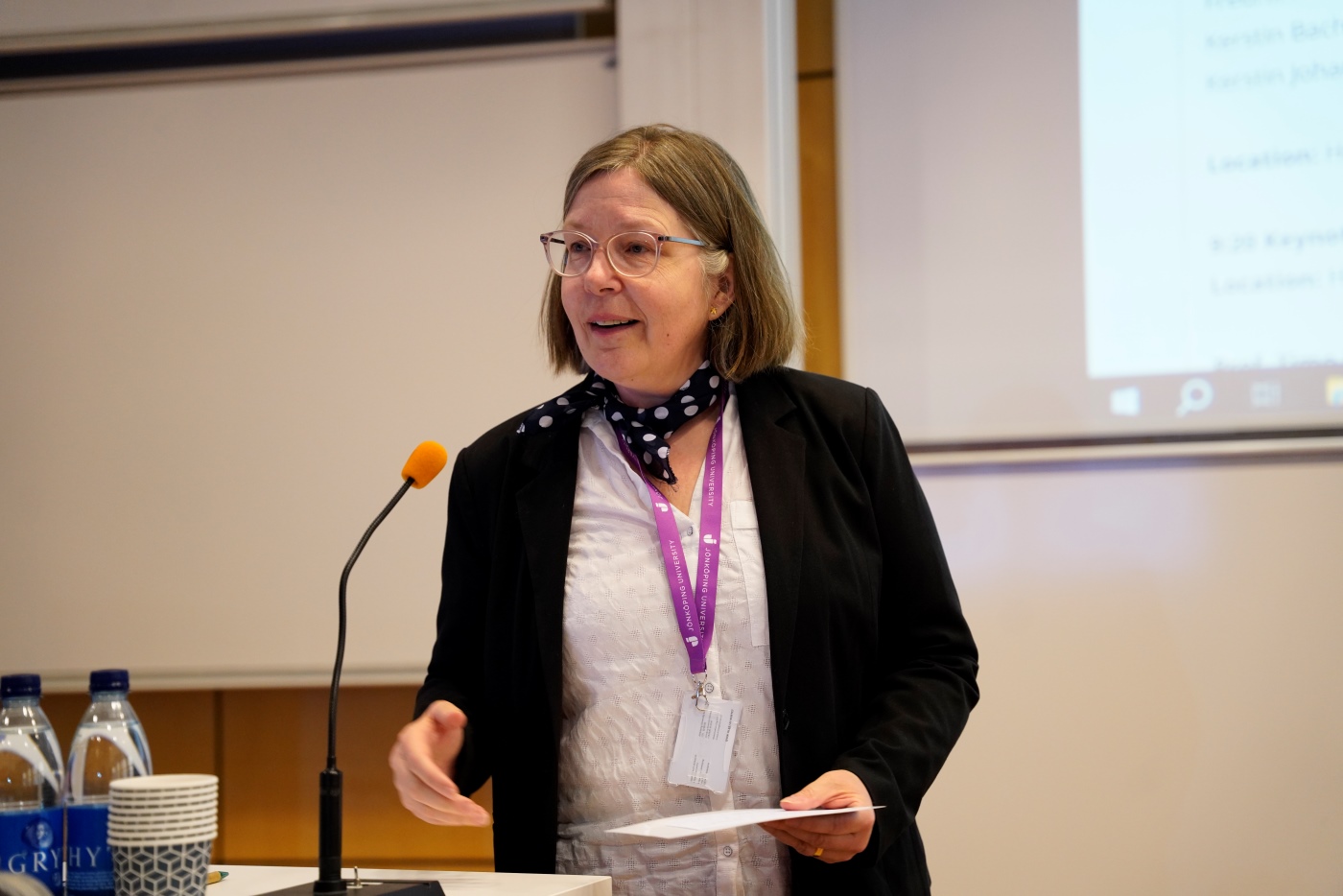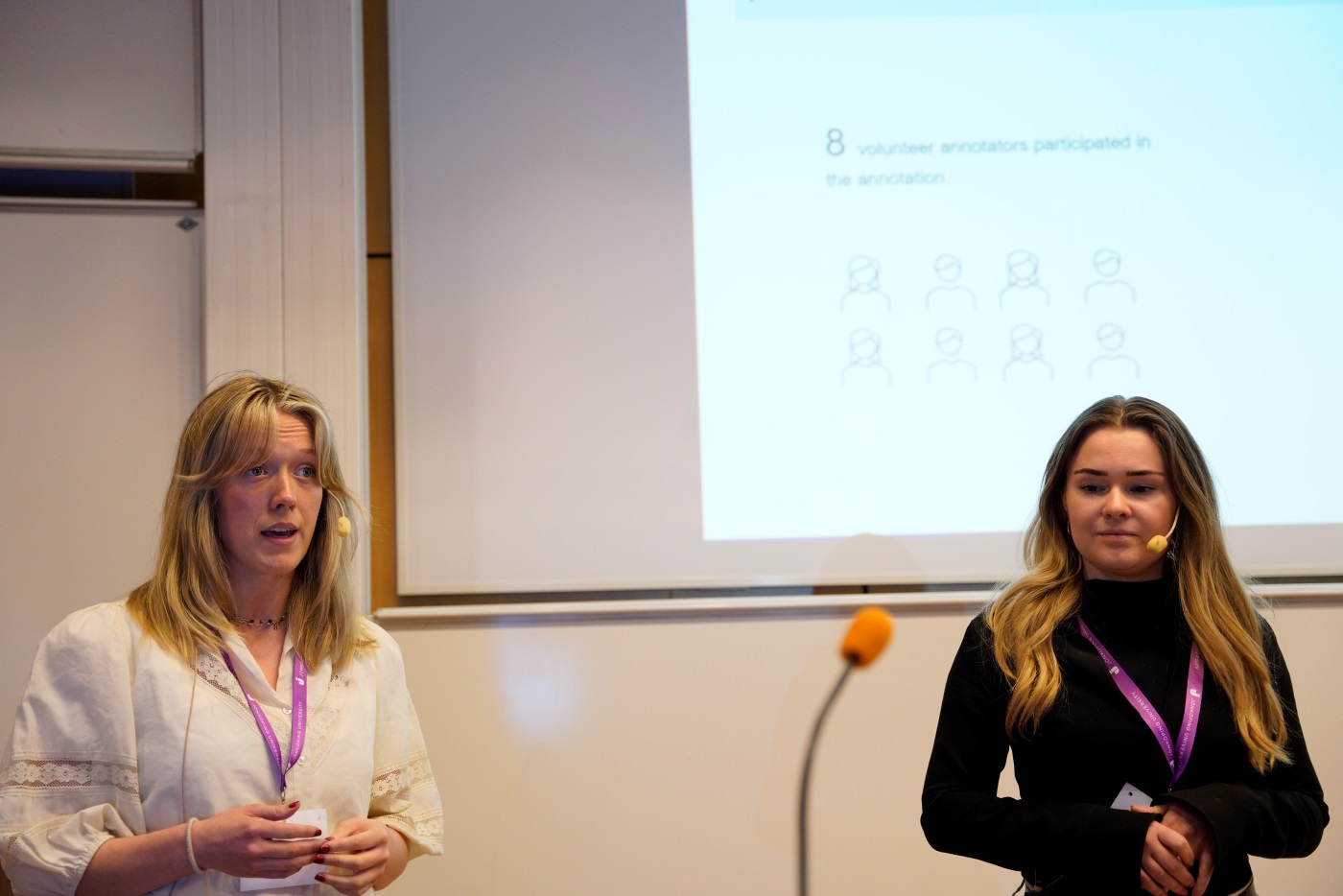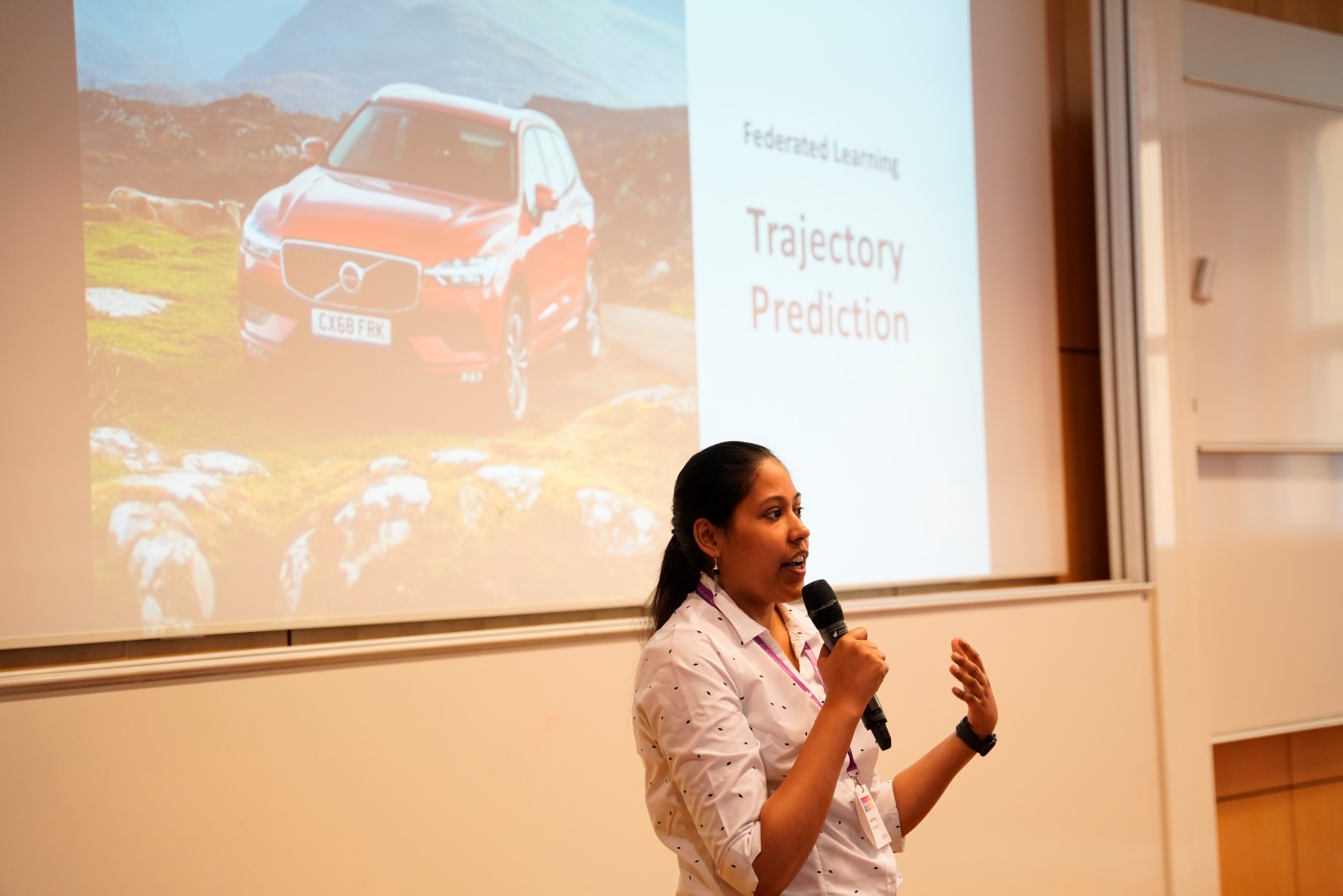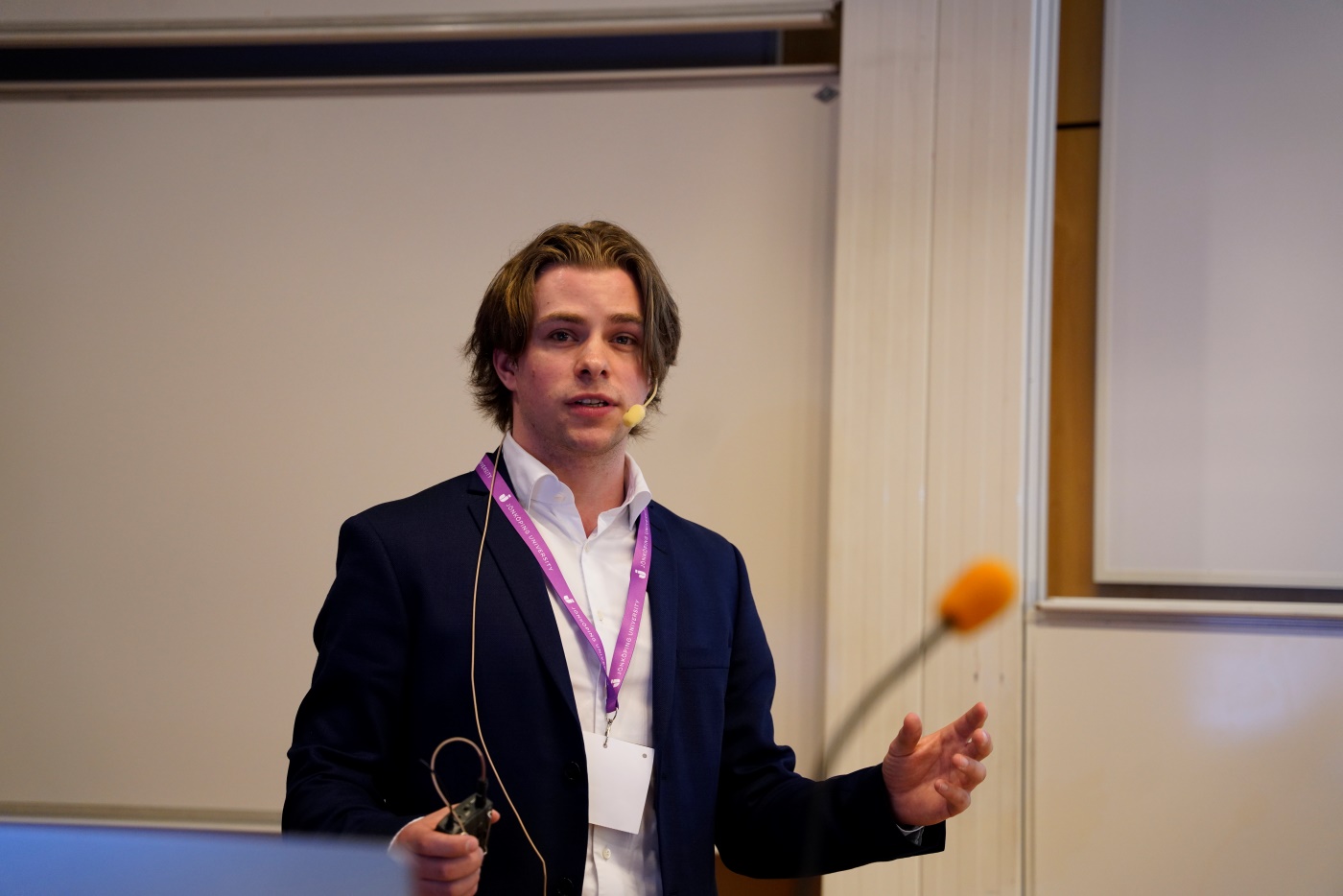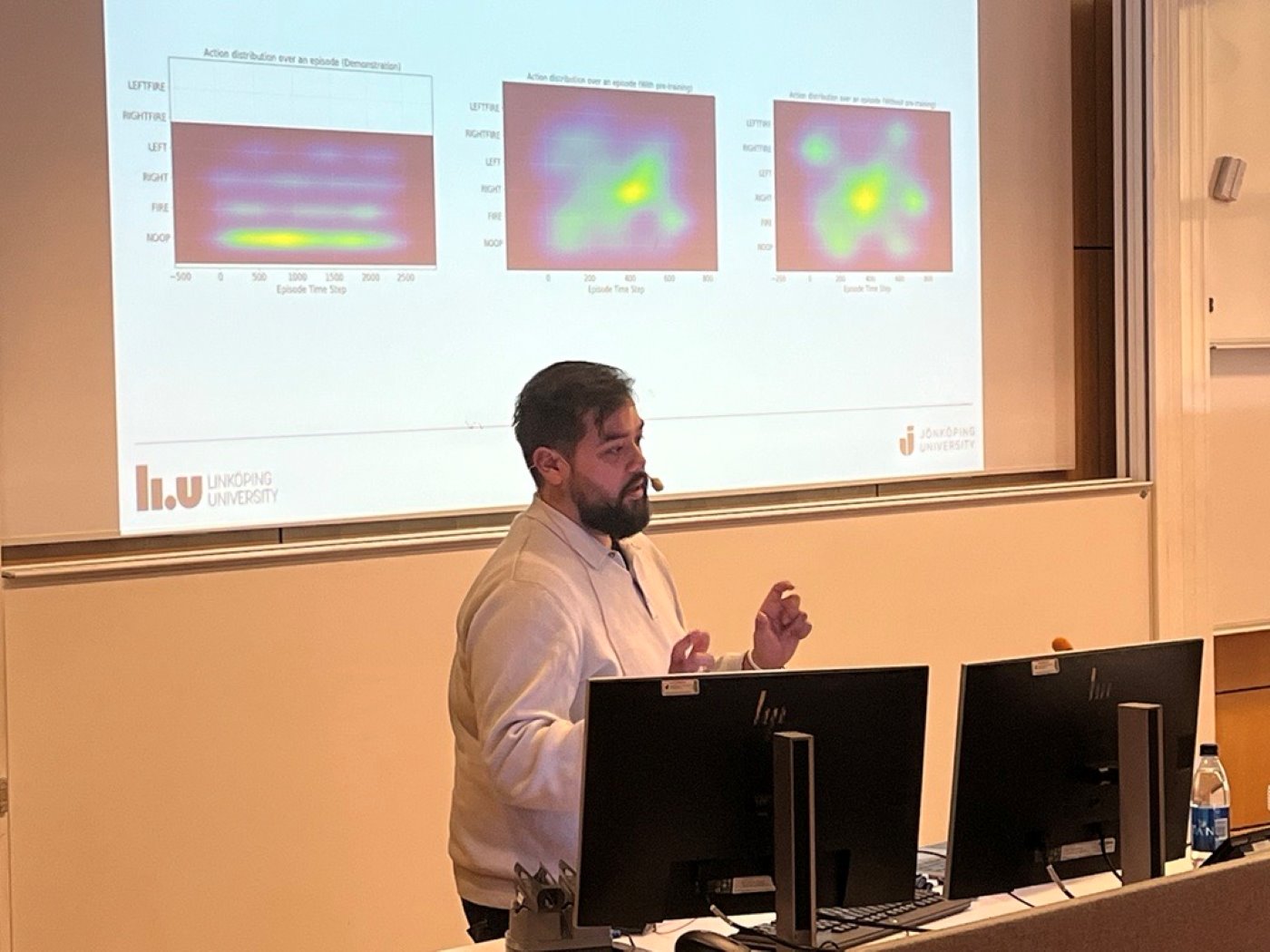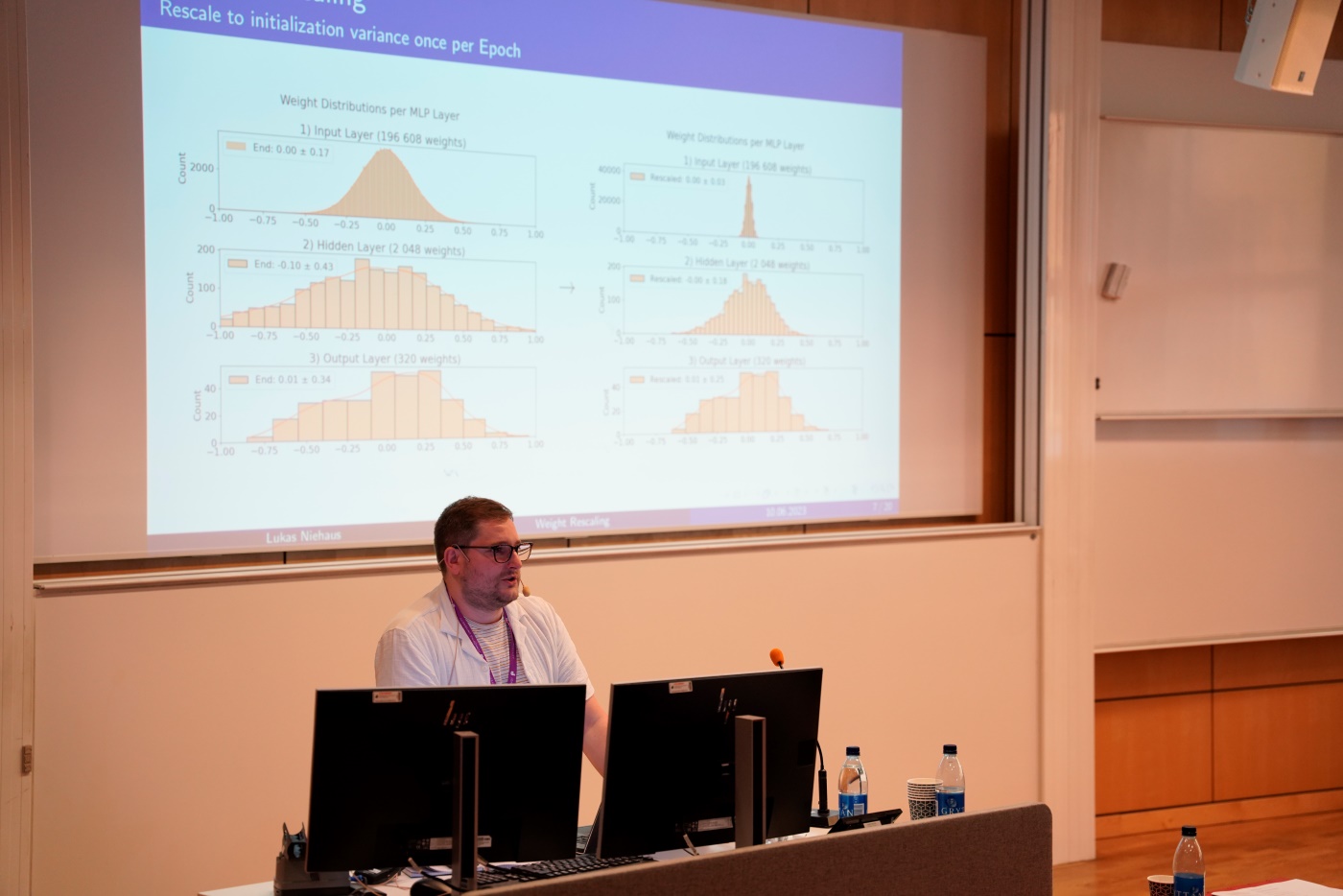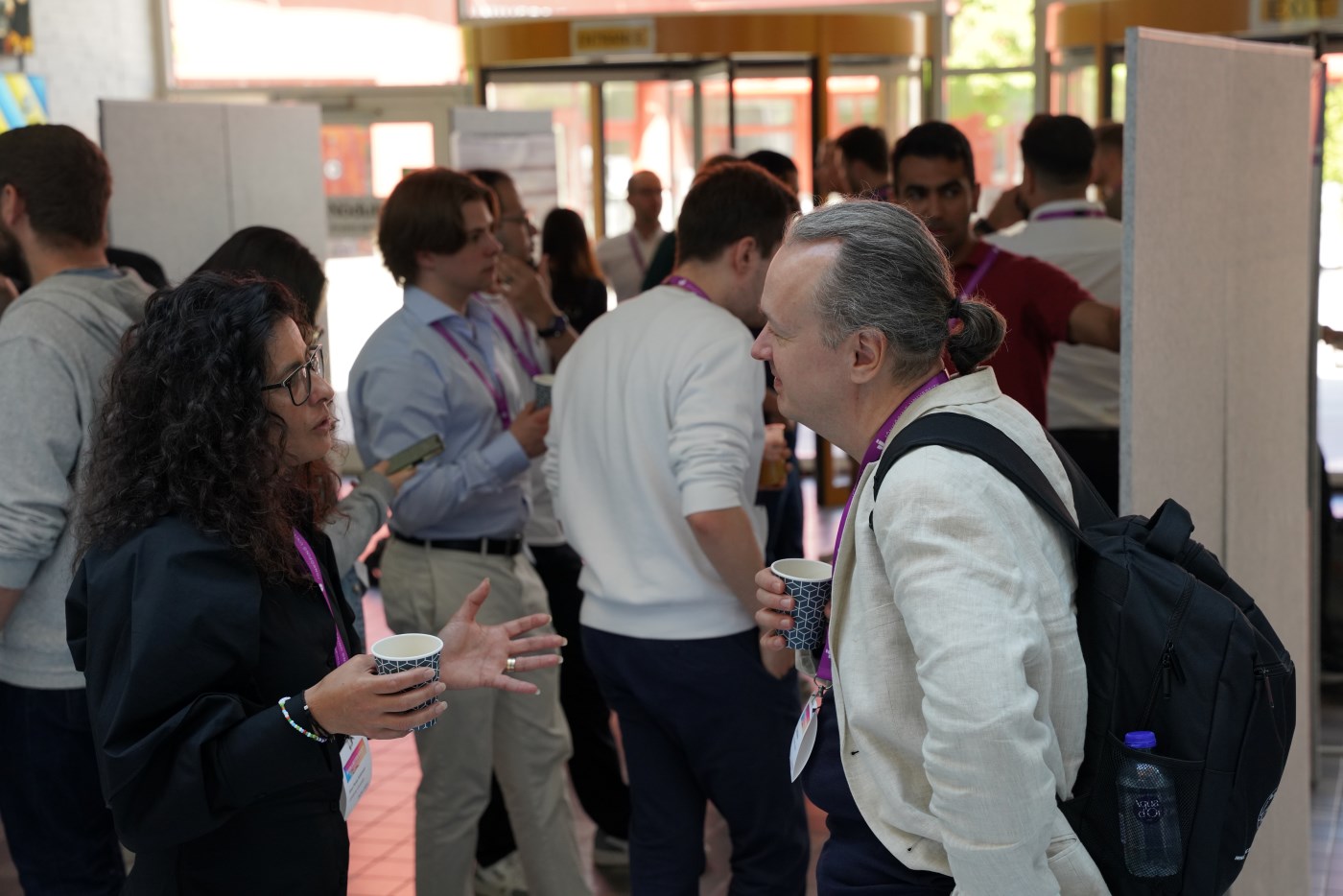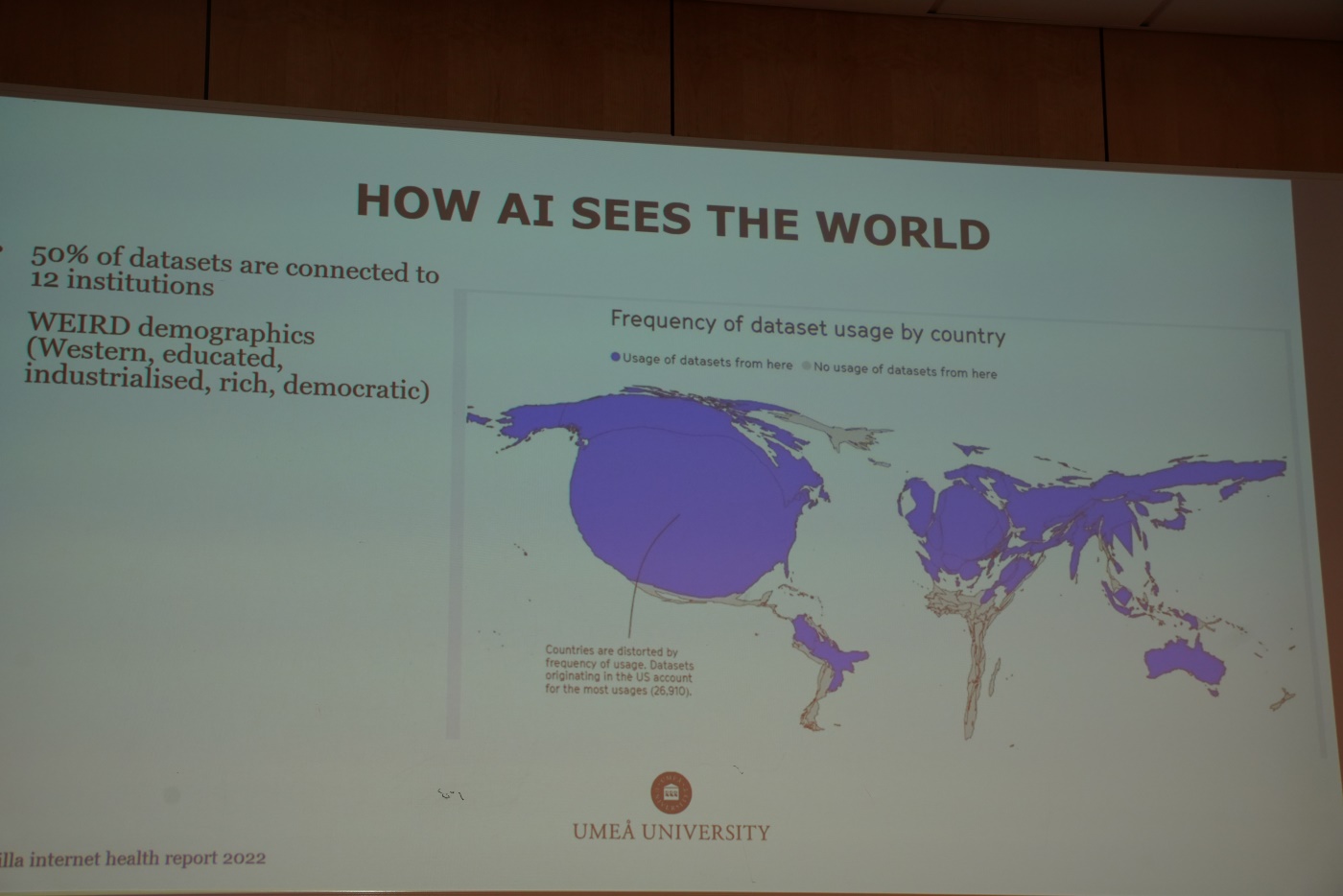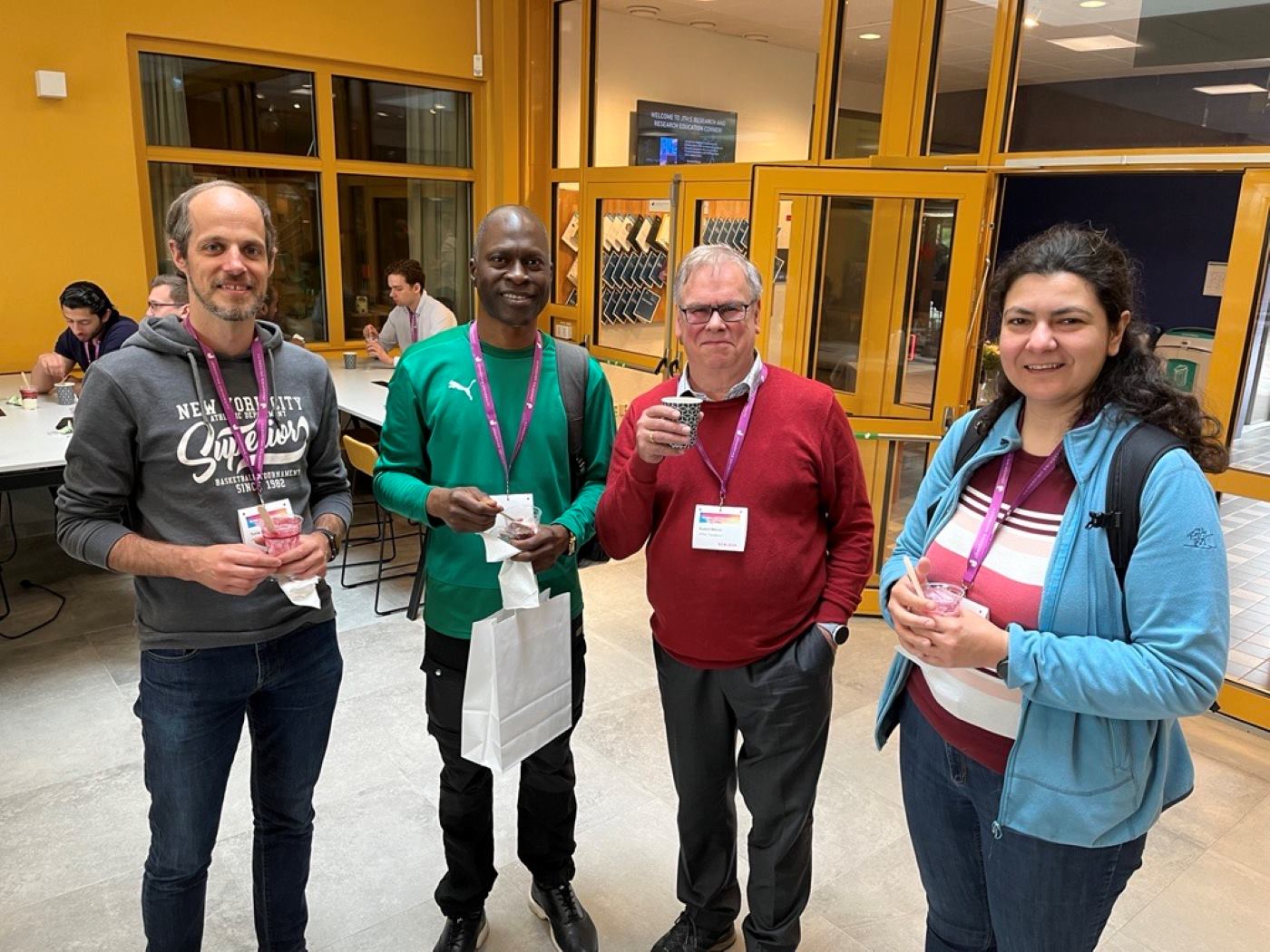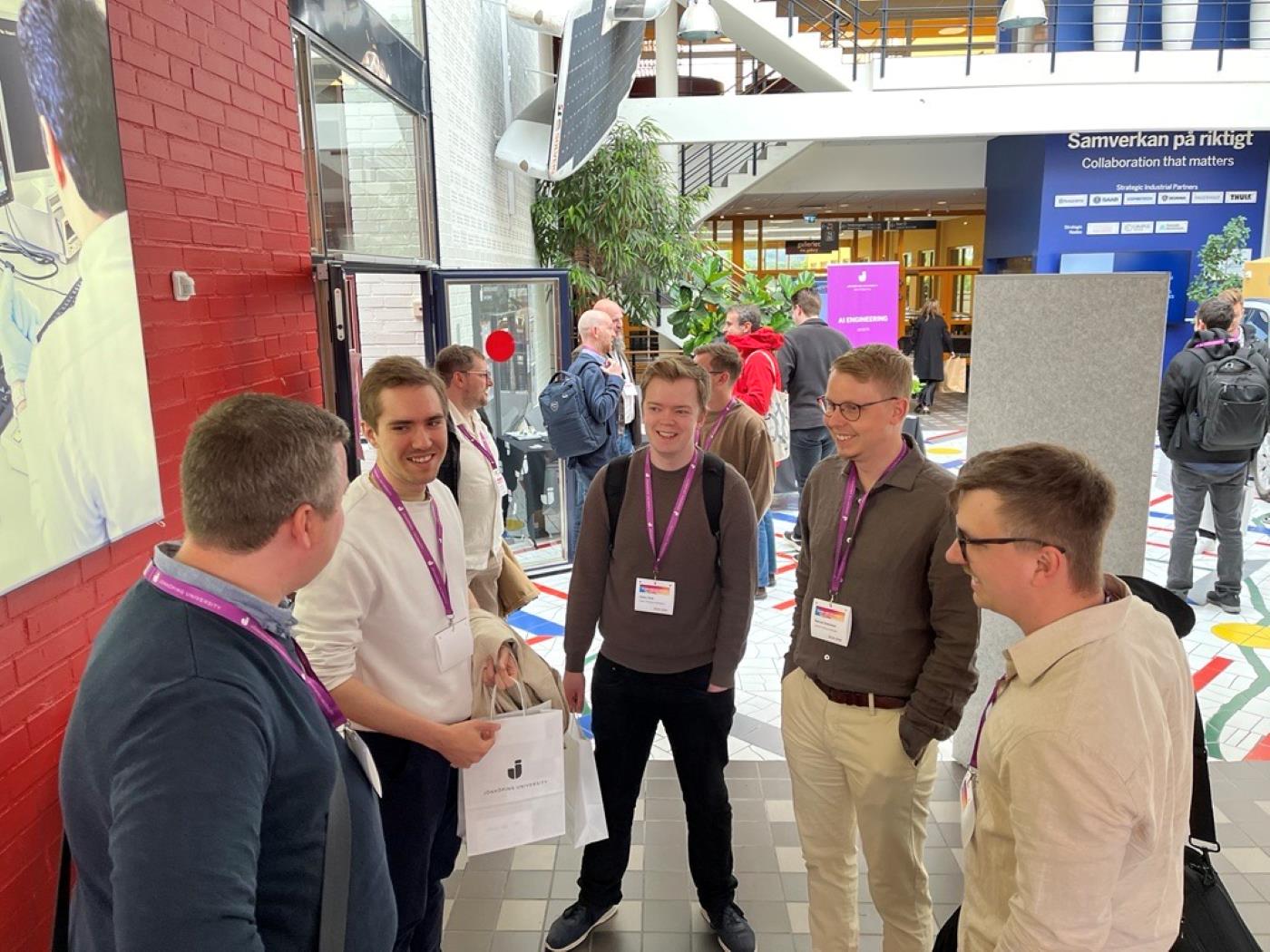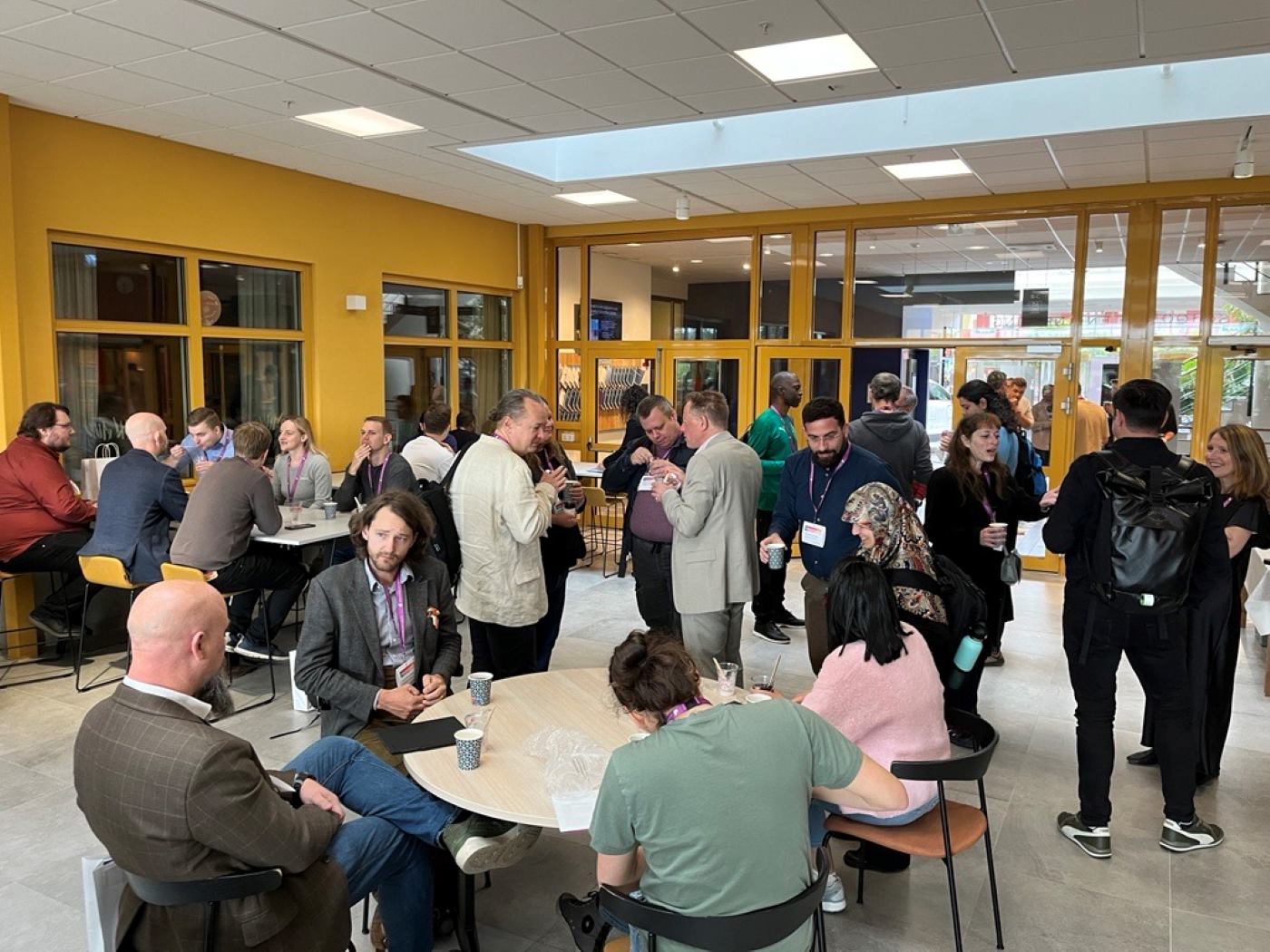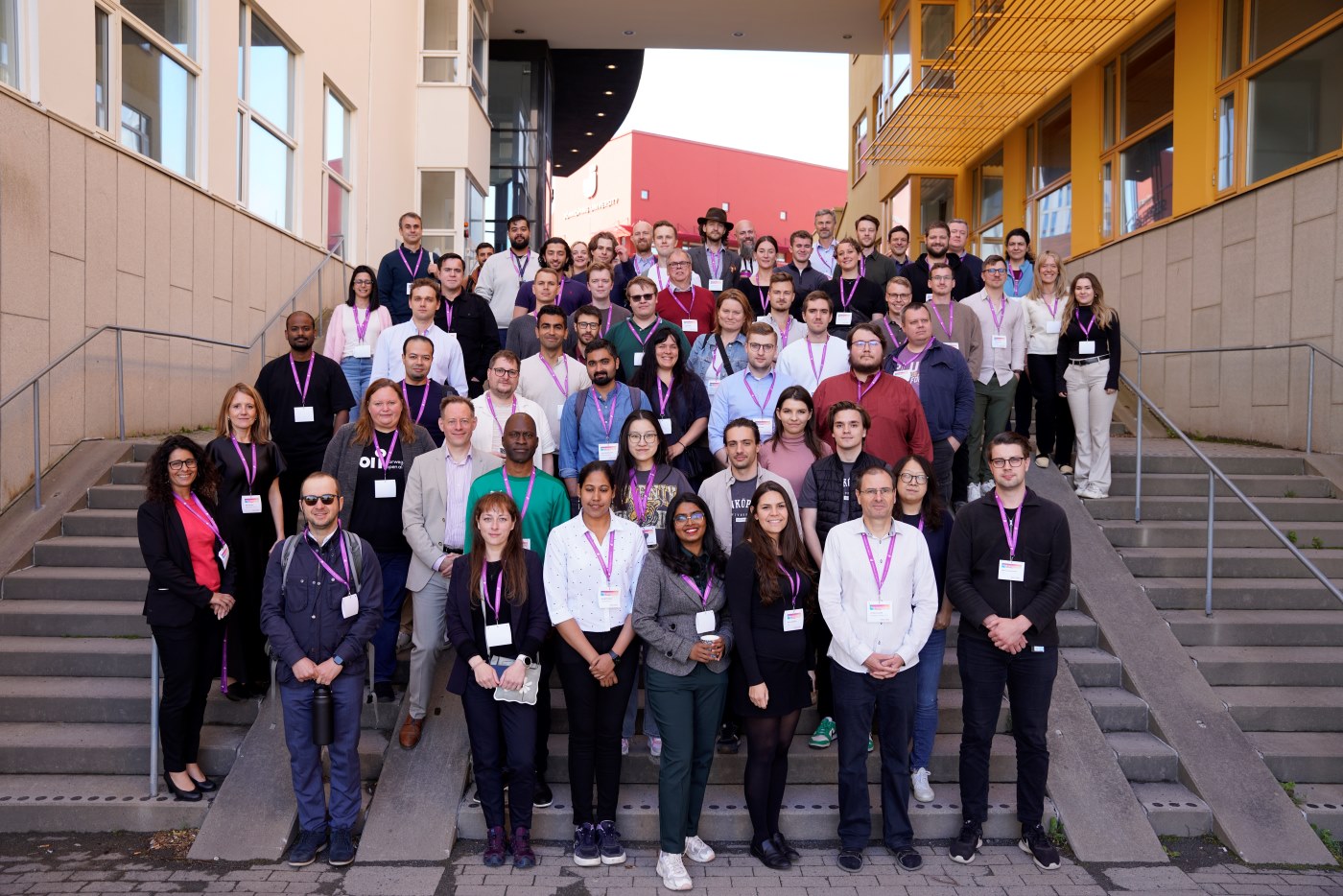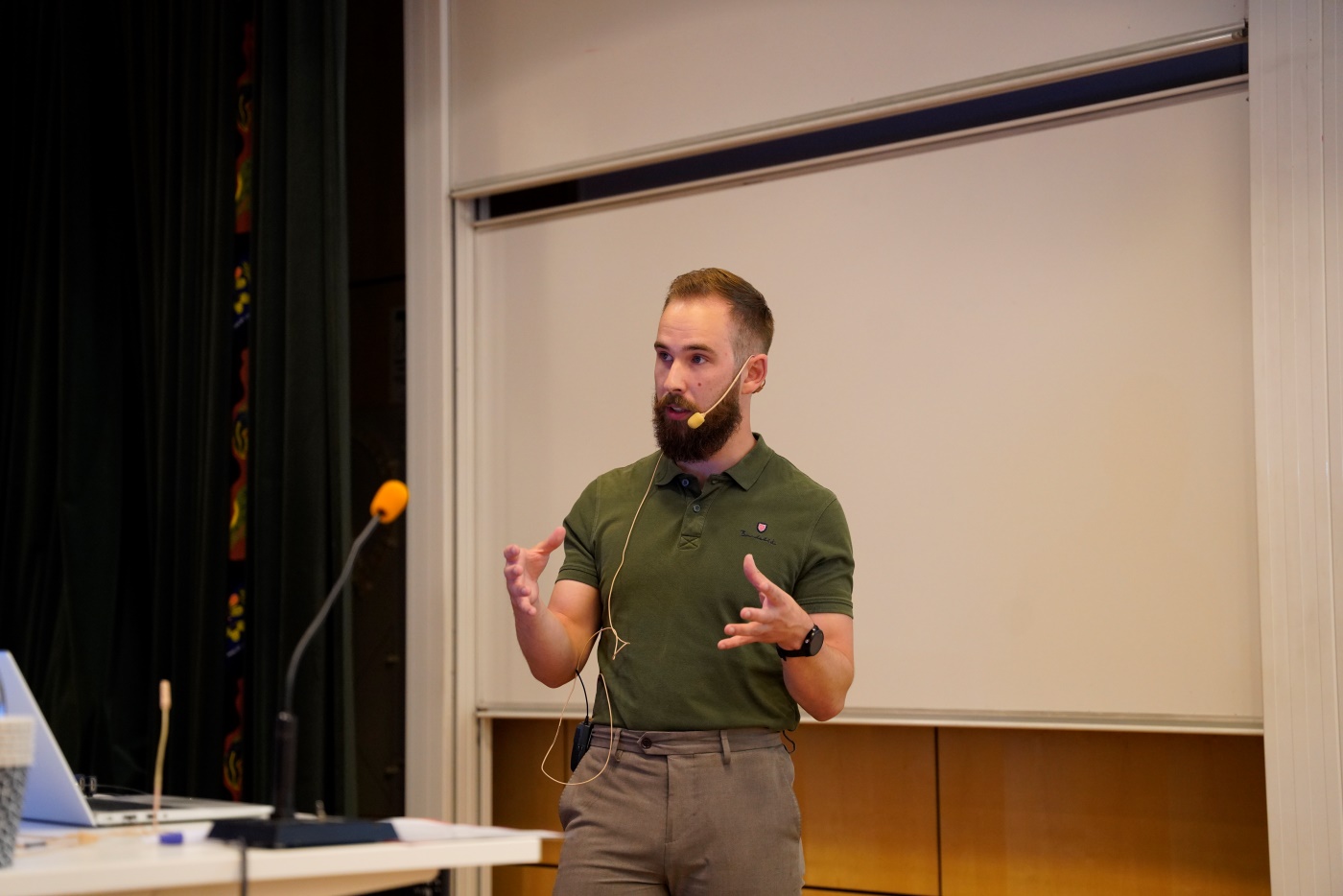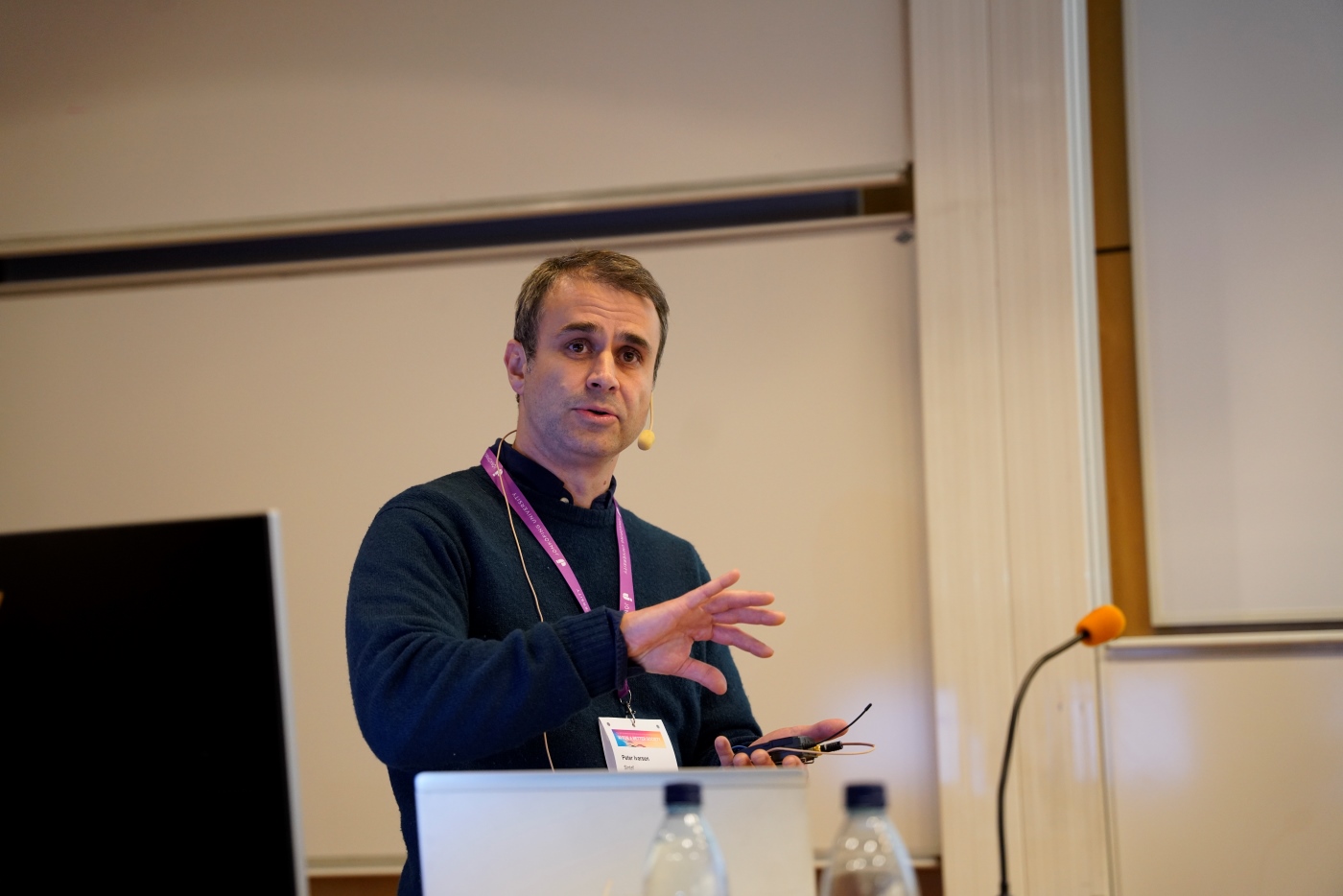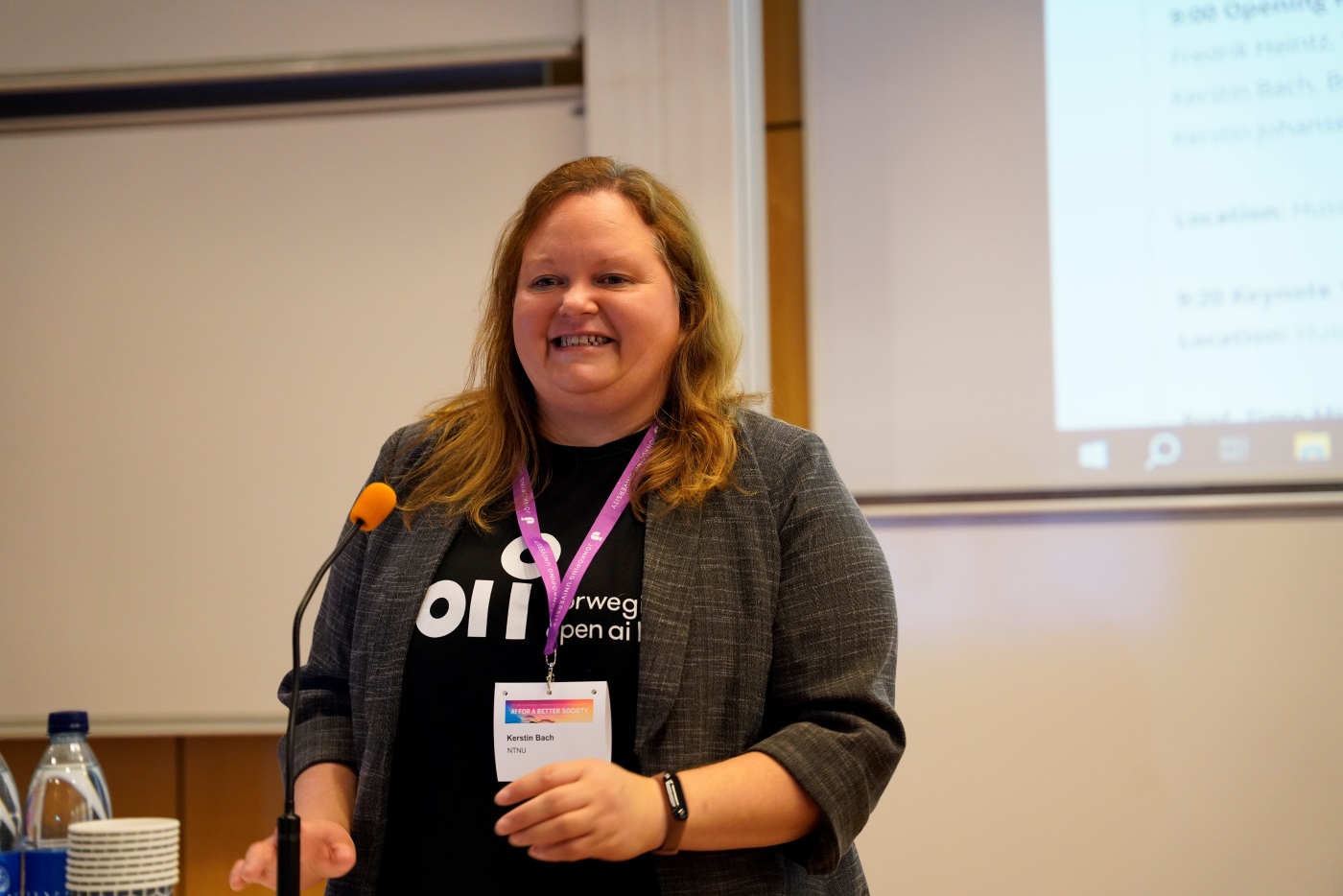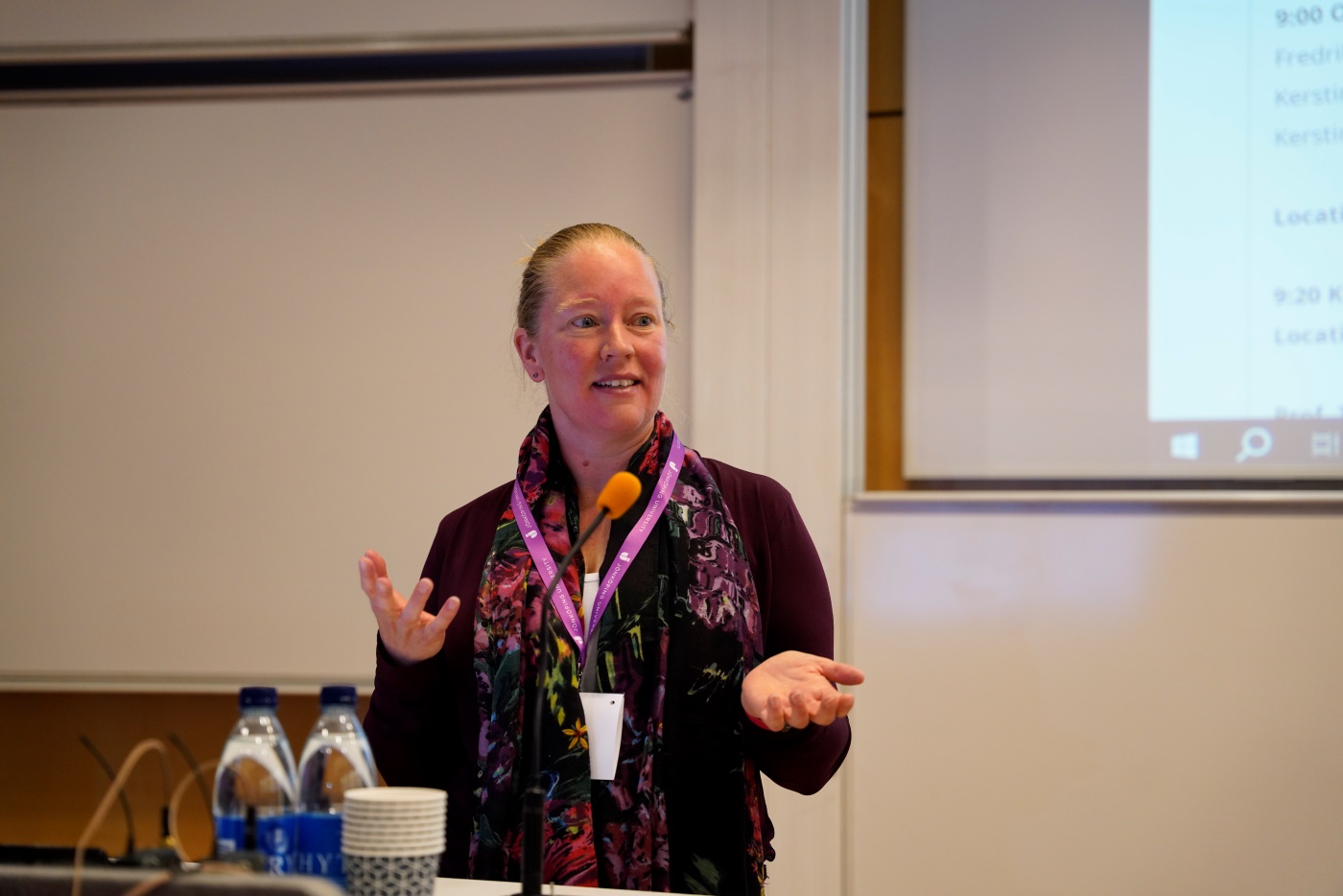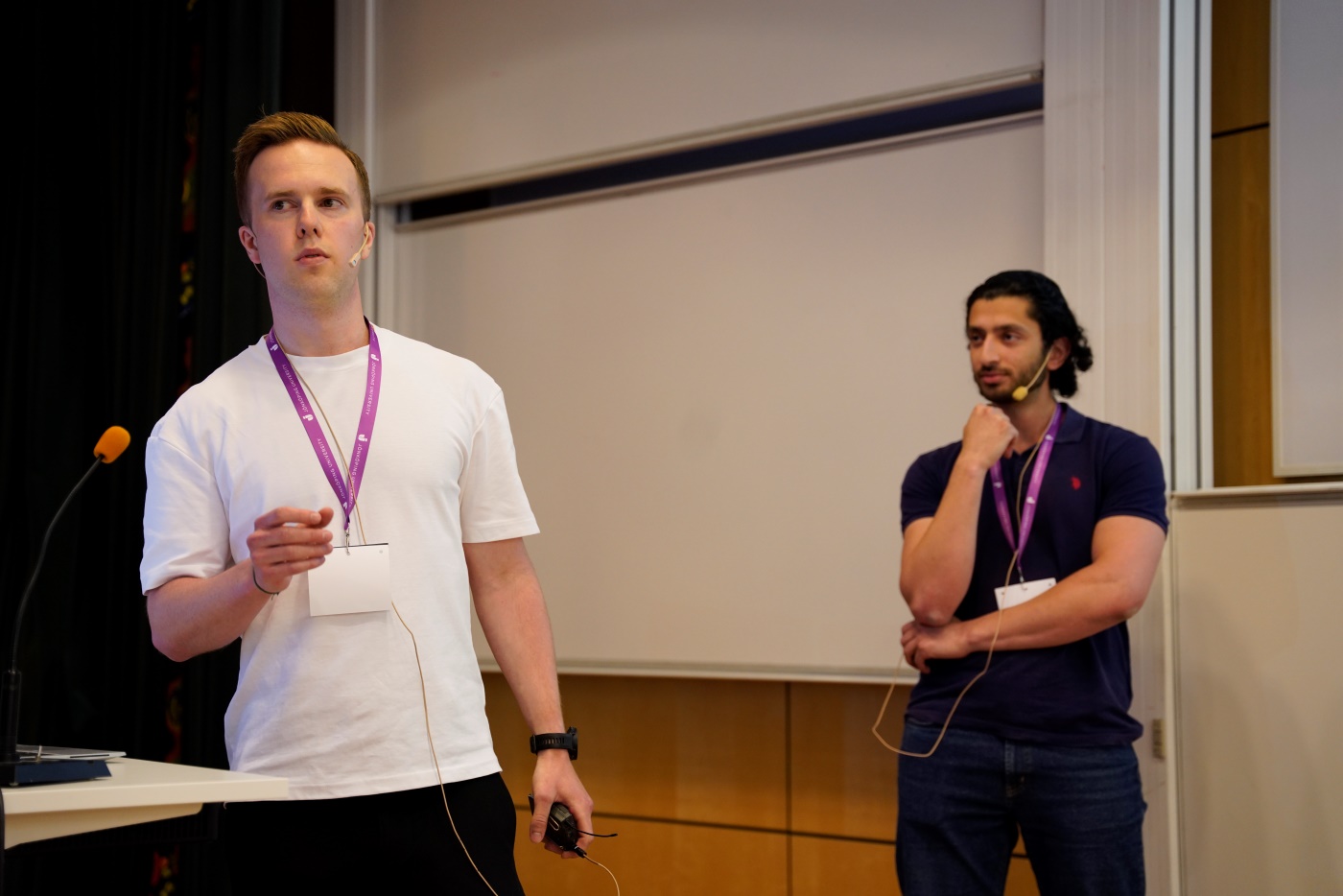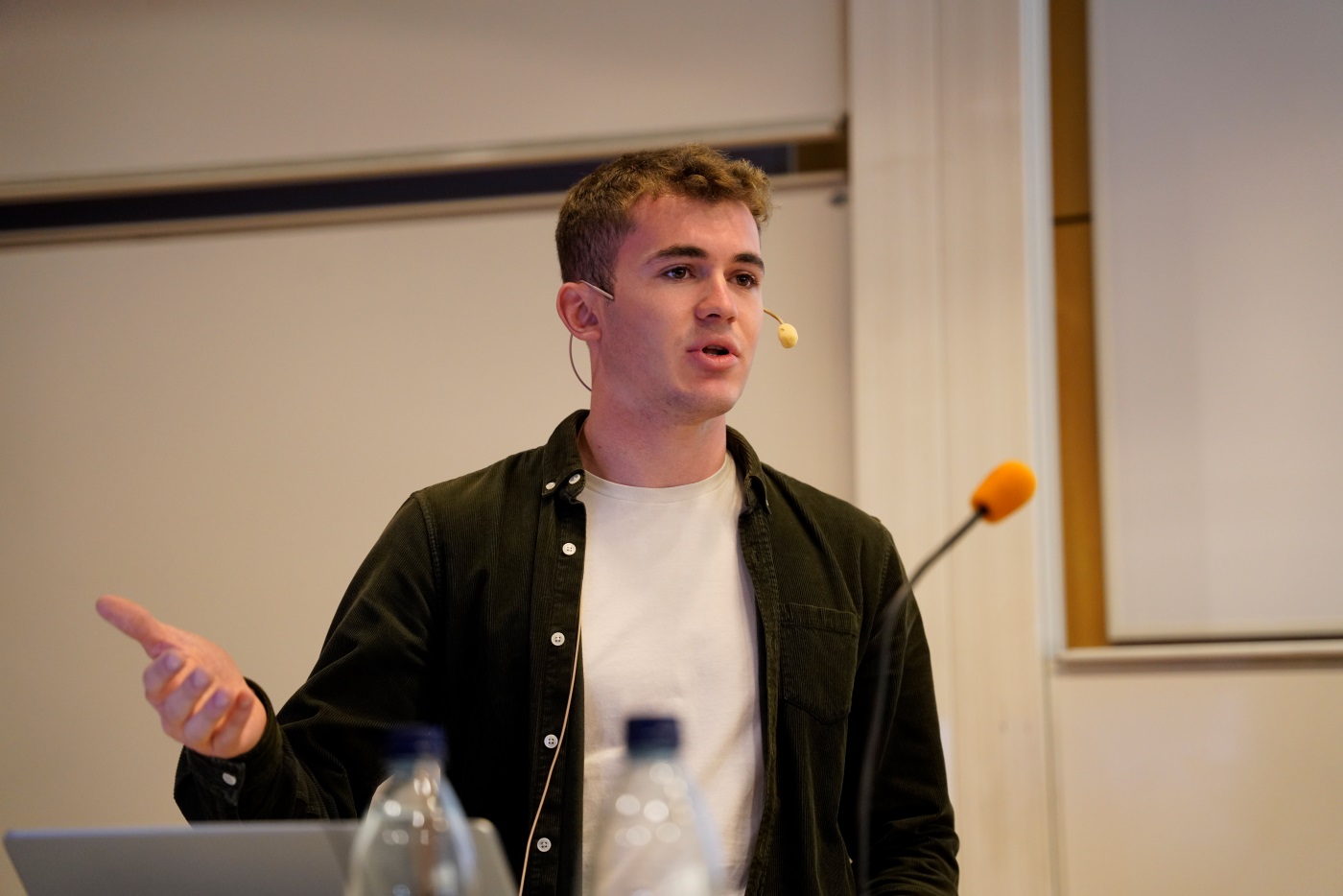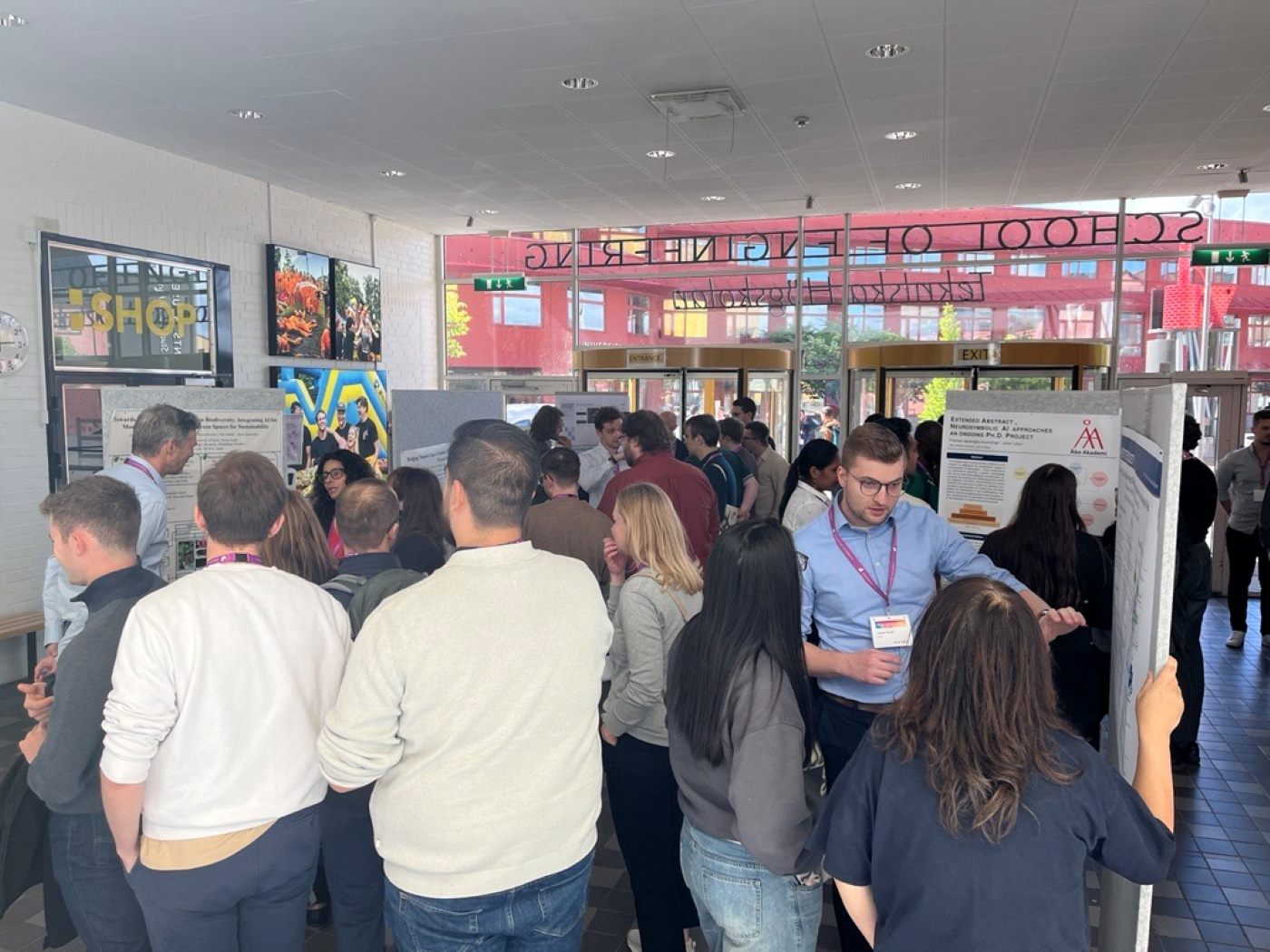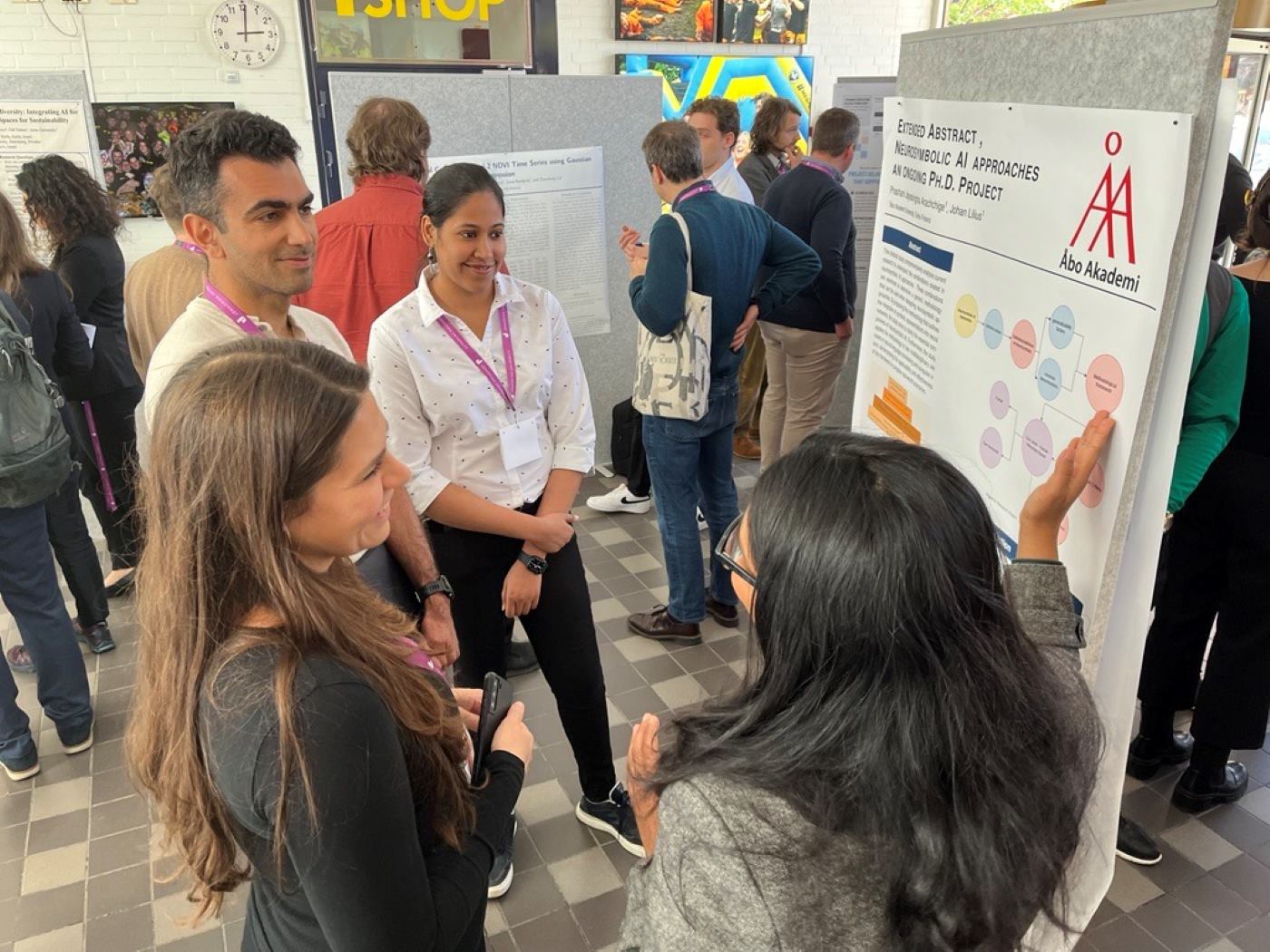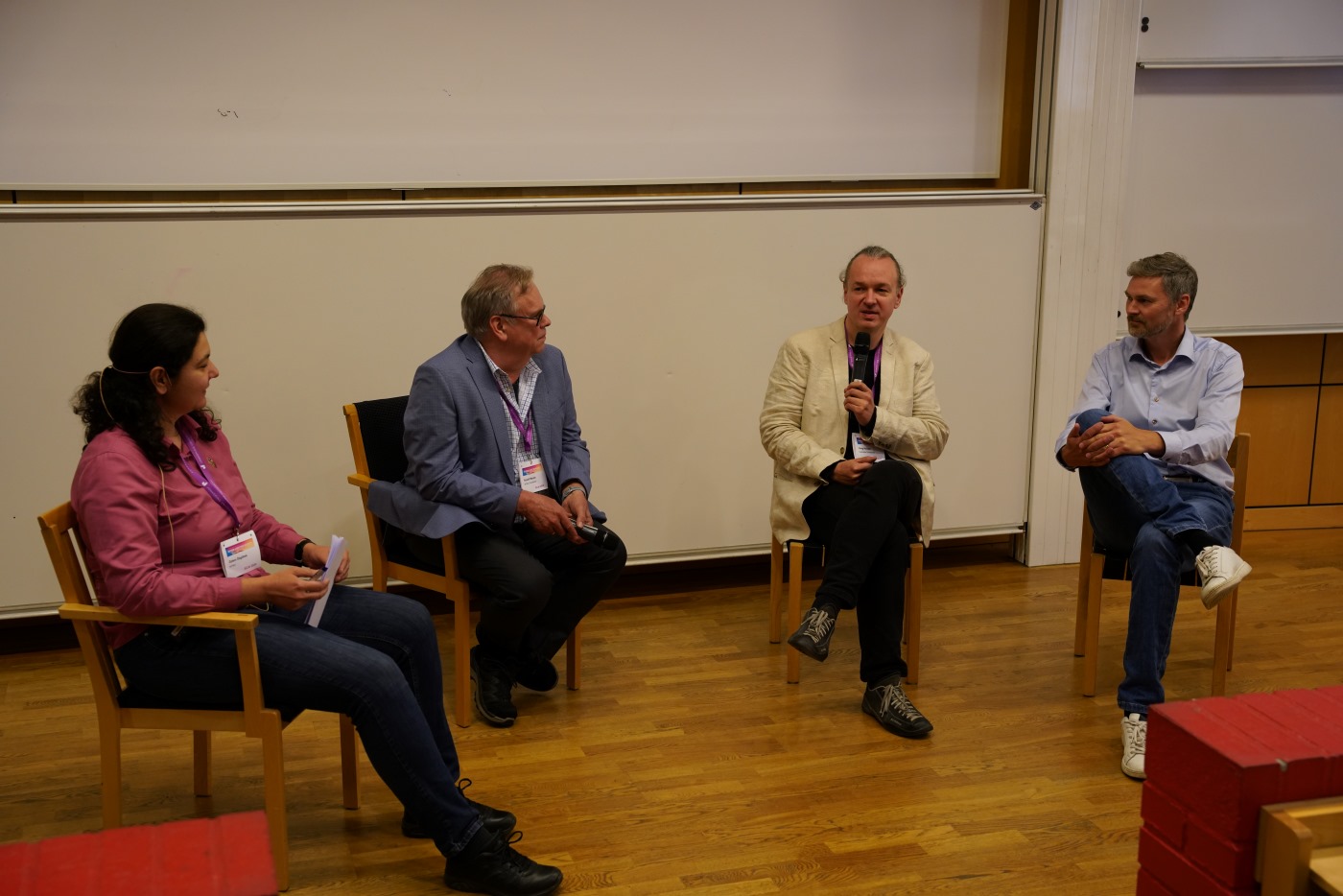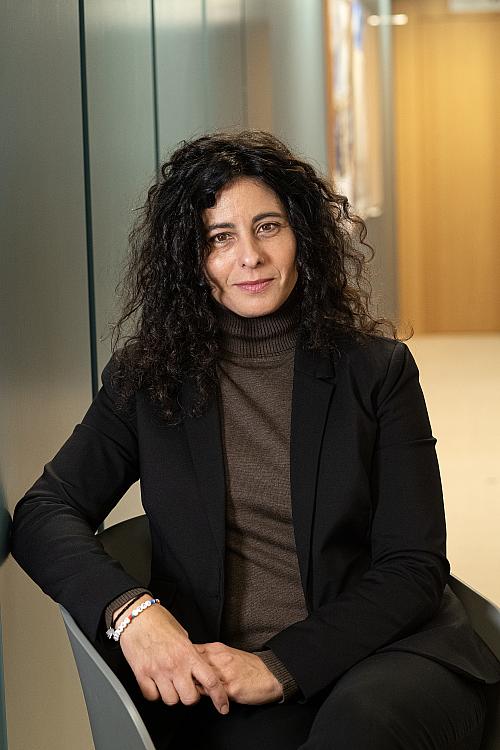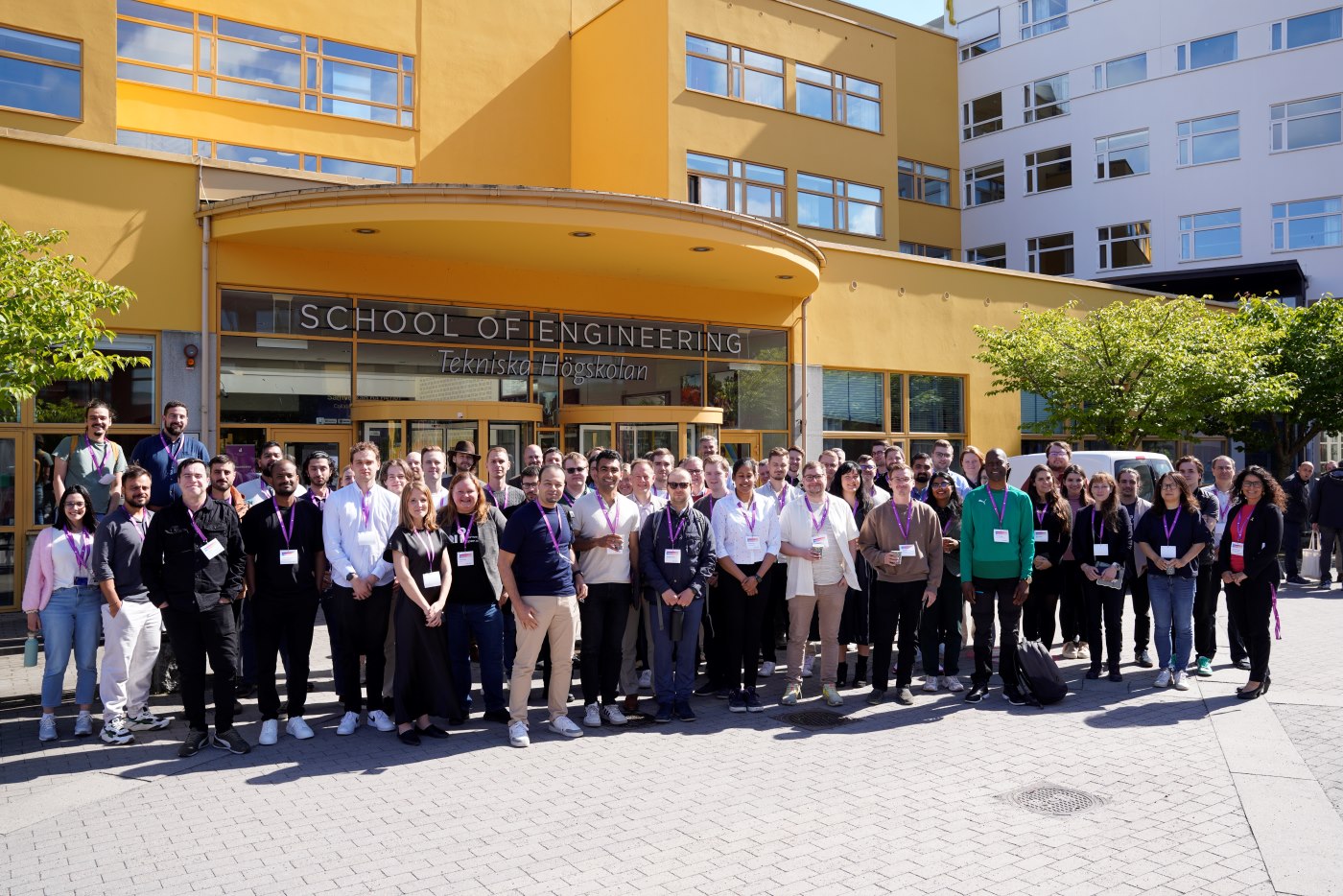
The SCAI conference at JTH attracted about 70 AI researchers from primarily Scandinavia.
Cutting-edge AI research presented at international conference
About 70 researchers and company representatives participated in the Scandinavian Conference on Artificial Intelligence (SCAI) at the School of Engineering (JTH) at Jönköping University (JU) on 10-11 June.
This was the first time that SCAI was organized in Jönköping and this year's theme was "AI for a better society".
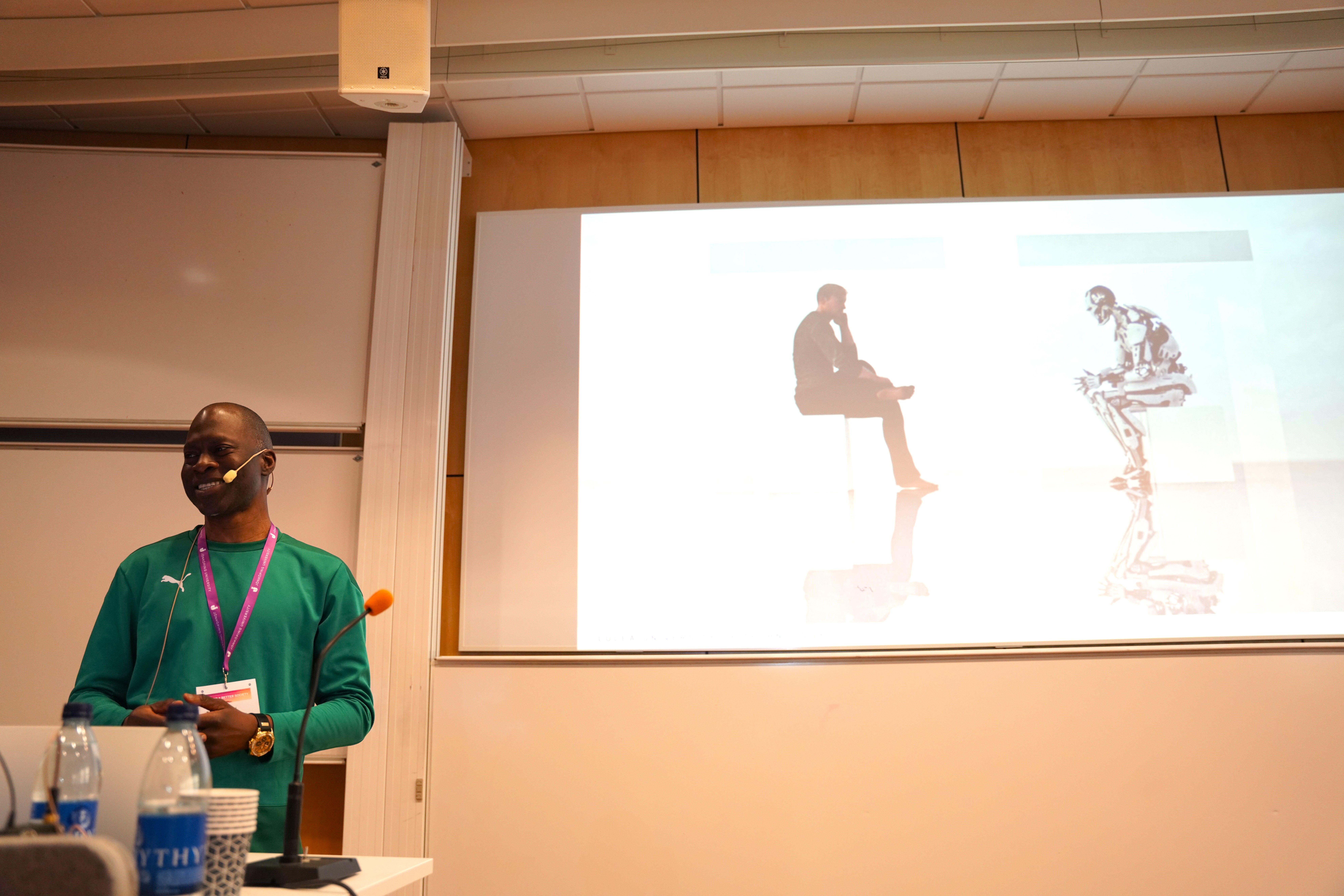
Tosin Adewumi, Postdoctoral researcher at Luleå University of Technology, was one of the many participants who presented their AI research at the SCAI conference at JTH. "It is inspiring to hear what AI questions the other researchers at the conference are working on and what results they have achieved," he says.
The purpose of the annual SCAI conference is to share new research results, promote collaboration and facilitate the dissemination of cutting-edge research and development in AI between academia and industry. Patrik Jägenstedt, Director Advanced Development at Robotics & AI Lab at Husqvarna Group, was one of four keynote speakers at the conference. He said that Husqvarna uses AI technology to improve its products so that, for example, their robotic lawnmowers can register obstacles and surfaces or whether the cutting blades are out of balance. He wants to make the robotic lawnmowers smarter and more personal so they can maintain the lawn like a gardener.
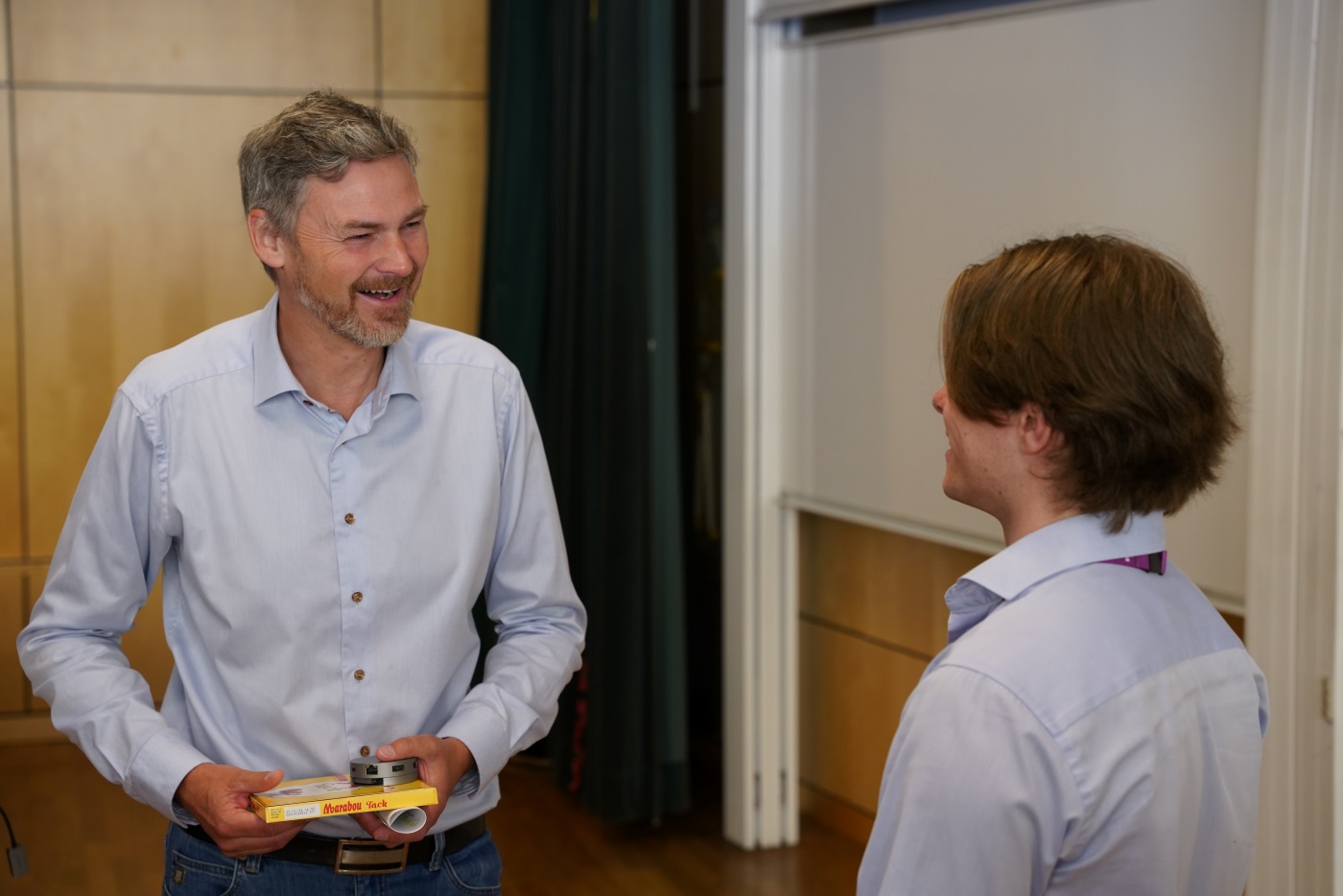
Many wanted to talk to Patrik Jägenstedt from Husqvarna Group, who was one of the main speakers at the conference.
“What is good about this conference are all the conversations and discussions. Many people came up and talked to me after my presentation, which provides an exchange about how to work with sensors, measurement and efficiency and more in different ways, which is extremely valuable for us,” says Patrik Jägenstedt.
He emphasizes that Husqvarna works closely with JTH on AI product collaboration, including through JTH's research project AFAIR (link!), on how to integrate data-driven AI into practice in a sustainable and competitive way.
“I believe that over time AI will be used basically everywhere at Husqvarna and through our collaboration with JTH we will have access to AI research at the forefront, and students who can do their degree thesis with us and whom we can then hire,” he says.
"The only possible way forward"
One of the other keynote speakers was Virginia Dignum, professor of Responsible Artificial Intelligence and director of the AI Policy Lab at Umeå University. She has an extensive track record and is a member of both the UN Advisory Body on AI, the Global Partnership on AI (GPAI), the UNESCO Expert Group for the Implementation of AI Recommendations and the OECD Expert Group on AI. She is also the founder of the Dutch AI alliance ALLAI and co-chair of WEF's Global Future Council on AI.
She talked about the need for a responsible approach to AI as the only possible way forward.
“In fact, we will start building AI with safety belts for the safety of the public and to increase their confidence in the technology. We need to be as safe as possible when using AI technology so that it does not harm us in one way or another,” says Virginia Dignum.
She doesn't think the public will notice anything at once, but that they will wonder why the added safety of AI hasn't been there before when it is introduced.
“We need this. It's like with cars. When I was a child, there were no seat belts in cars, but today we would not imagine getting into a car without seat belts,” says Virginia Dignum.
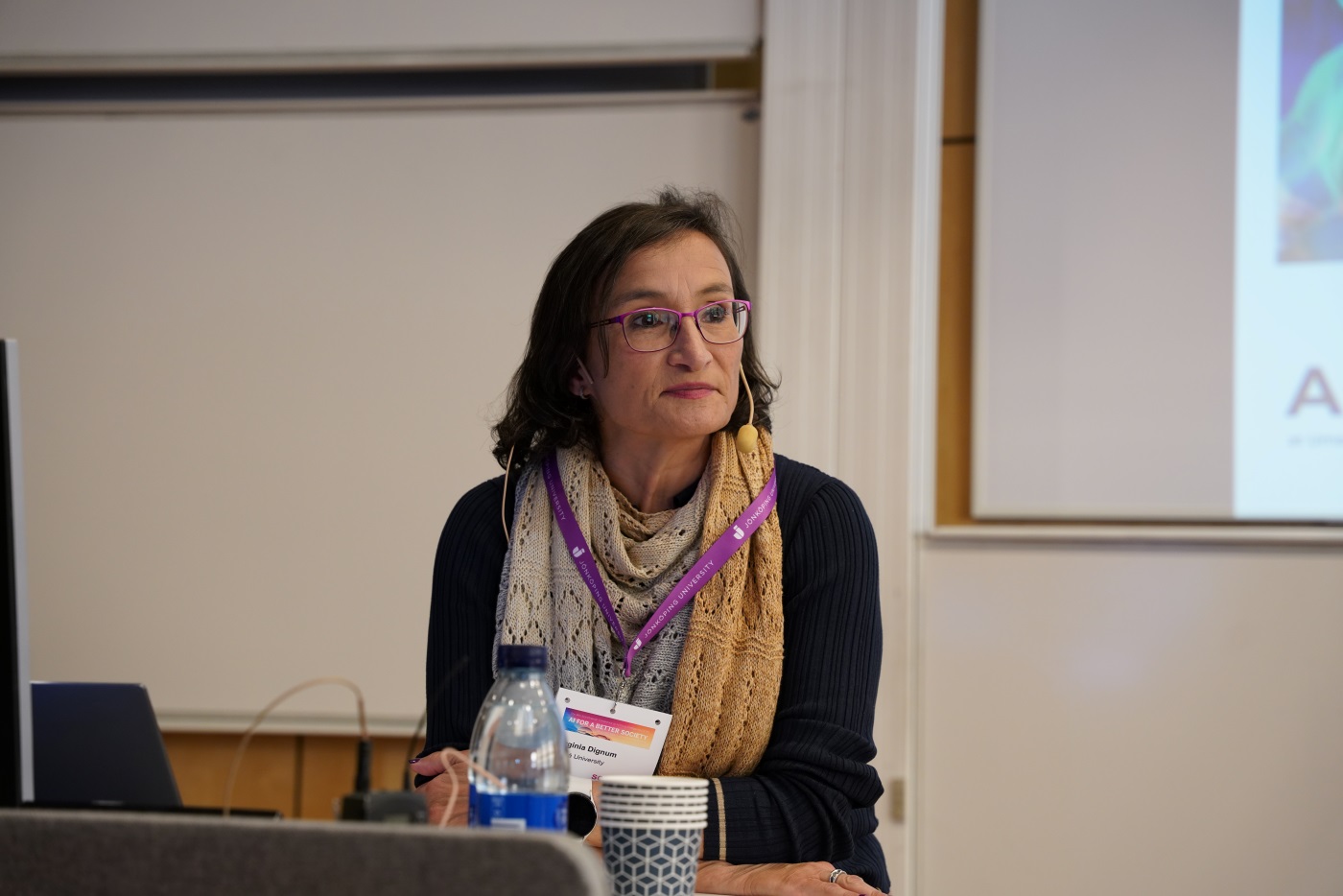
Virginia Dignum, Professor of Responsible Artificial Intelligence at Umeå University, was one of the main speakers at the SCAI conference and talked about the importance of responsible AI.
"Does not fit the AI's understanding of the world"
She showed examples of ChatGPT not wanting to make jokes about women or overweight people, but tall people. When she searched for doctors, she only got pictures of men, while when she asked for nurses, only pictures of women were shown. Another example is that she failed to get a picture of an dark-skinned doctor treating a light-skinned child, but only dark-skinned children.
“That image does not fit the AI's understanding of the world. The system doesn't have enough data to generate things outside of what it's been trained to do,” says Virginia Dignum.
She thinks it's great that researchers and company representatives from different backgrounds get together regularly at this type of conference.
“It's my first time in Jönköping and I like it. It is very beautiful here,” she says.
Internationally leading AI researchers
Einav Peretz Andersson, programme manager for the AI Engineering master's programme at JTH and general chairman of the conference, thinks that the two conference days at JTH were very interesting with both internationally leading and young, talented AI researchers.
“It has certainly attracted participants who might not have come here otherwise, which puts JTH and JU on the map. The conference has also been a meeting place where researchers and companies have interacted and discussed future projects, which is always positive,” says Einav Peretz Andersson.
She thinks that all four keynote speakers were fantastic and that the conference has raised major AI issues concerning AI ACT, ethics and morality, deep machine learning (deep learning), AI algorithms and a responsible use of AI.
Read more about SCAI here Opens in new window.
Read more about AI ACT here External link, opens in new window.
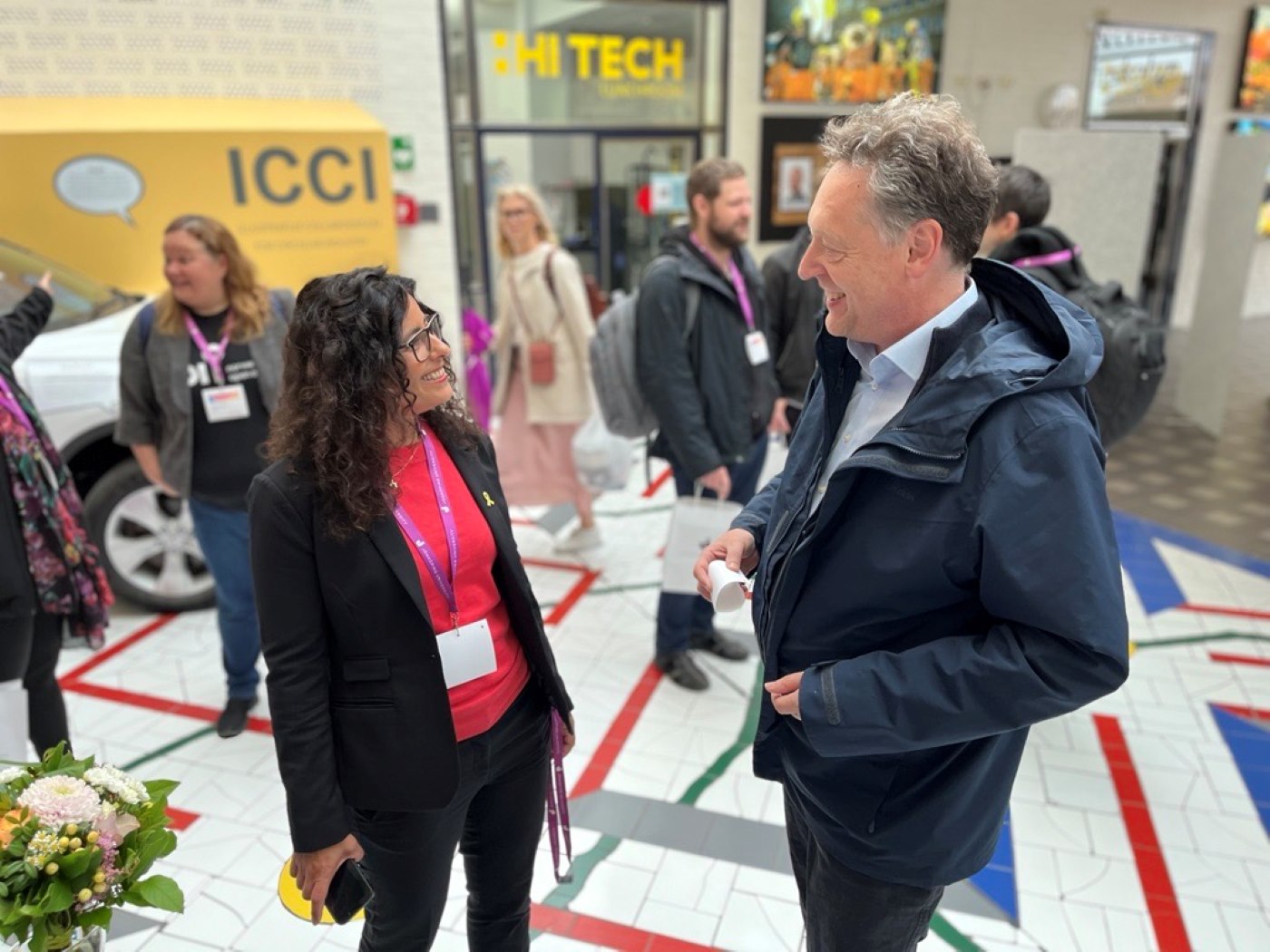
Einav Peretz Andersson, programme manager for the AI Engineering master's programme at JTH and general chairman of this year's conference in conversation with Professor Andreas Stephan, Linnaeus University.
- Lecturer AI transformation
- School of Engineering
- einav.peretz.andersson@ju.se
- +46 36-10 1713

